#this one's a plot and worldbuilding analysis
Explore tagged Tumblr posts
Text
Rambles in Star Wars History: The extreme shenanigans that changed an Empire
Bioware games can absolutely fascinate me, in part because of their worldbuilding, and in part because of where the worldbuilding ends. I mean, I did a whole long series of posts on the grammar of Qunlat and I have at least a dozen essays worth of material of exegetical analysis of religion in Dragon Age kicking around in my brain, which I keep threatening to actually manifest.
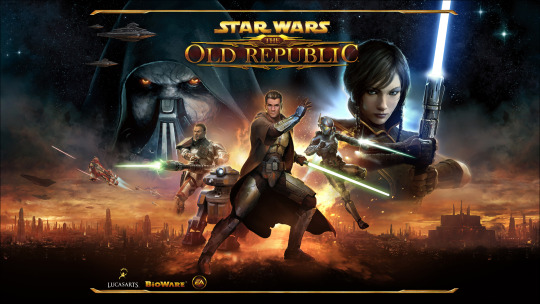
But since I'm here with my worldbuilding hat on, I'm going to ramble about Star Wars: The Old Republic, focusing on some of the sometimes-hilarious drama that's implied by the plot, and the implications for how these shenanigans remade a major galactic society in the process. Involved will be a man who faked his death to get out of going to meetings, a wine uncle who might become emperor, a living scowl with dangerous shoulders, and other assorted animals.
Expect a lot of bonus rambles in the image alt-texts, which is where I store commentary and jokes that I can't fit into the flow of the main post.
———
Before I dig into the topic at hand, I have to set the scene for those who don't know the game, or have forgotten in the fourteen years since the game launched.
Spoilers in the post below for Act 1-3 of the Imperial Agent, Sith Warrior, and Inquisitor storylines, Act 1 of the Jedi Knight storyline, the post-Act 3 Battle of Ilum flashpoint, and for various expansions including Rise of the Emperor, Knights of the Fallen Empire, Onslaught, and Legacy of the Sith. Assume that all reference links to Wookieepedia contain major spoilers.
SWTOR is an MMO set 3600 years before the Skywalkers crashed through the ceiling tiles of the galaxy, though it's not to say anything was less chaotic back then, just different chaos.

(Pictured: Anakin Skywalker, circa 32 BBY-4 ABY)
In this time, the titular Old Republic is opposed by a Sith Empire, which is precisely as functional as one might expect. After a decades-long conflict that ended with a Sith victory but left both sides exhausted, a state of cold war began. The Jedi, their Grand Temple destroyed, left Republic space to settle on an ancestral world. The Republic, battered and reeling, tried to recover its stride through use of its superior size and resources, and producing a truly unhinged number of superweapons.

The Sith Empire, in some ways, tried to pretend everything was fine for quite a while. They had successfully forced the Republic into a favorable treaty to end the war. They'd gained territory, they had a lot of work to do there.
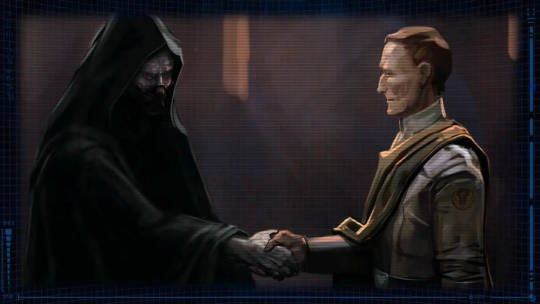
…But as things started to look more and more like war again, they were left with the uncomfortable realization that they had sorta kinda killed most of the Sith in the last war, and Imperial citizens in good standing weren't producing enough Force-sensitive kids fast enough to rebuild the losses. Might've had something to do with most of them being dead.

The Empire, of course, is an absolute clusterfuck of a society. Slaves toil to maintain its power. Children of a slave and a citizen will be citizens themselves—unless they're "aliens", a category that includes everyone that isn't a human or a Sith pureblood, the original Sith species.
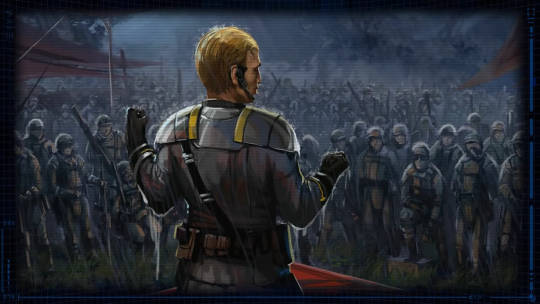
Being a citizen isn't great either: The Force-blind face mandatory conscription into the military, and can never rise to the highest echelons of society. Above them, the Sith act as a semi-hereditary aristocracy of evil space-wizards that serve an immortal, eldritch Emperor, their living god who has also kiiiind of gone AWOL for reasons only a few of them understand. He's torn between doing his job or staring at a living paperweight, and the paperweight has been winning. He also recently got trapped by an evil hole in the ground, it's complicated.

With the Emperor incommunicado, the duties of the state fall to the Dark Council, a ruling body of up to twelve Dark Lords of the Sith. Each have their own sphere of governmental influence, which are, one can only assume, very dark as well.
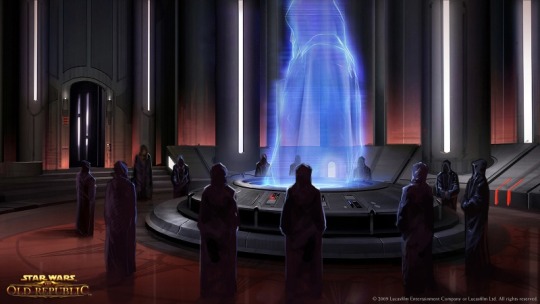
Presumably, the Dark Council had something to do with the inevitable yet still surprising solution to their space wizard deficit: over a thousand years of laws were suddenly overturned. Slaves, aliens, and prisoners were not only permitted to become Sith, it was now mandatory that they report for induction into training programs if they possessed any hint of Force-sensitivity.
This is how one of the eight protagonists of the MMO gets their start: if you play the Sith Inquisitor plotline, you begin as a former slave who has survived basic training and made it to the Sith Academy, where your teacher dearly wants to kill you. Your first mission: survive school.
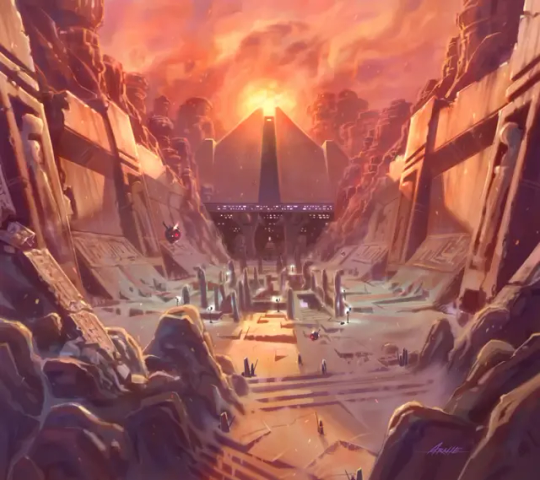
I'm sure this is very relatable to quite a lot of you.
Now that I've got my PhD with only a few gray hairs, I'm looking back at this premise and thinking: This would completely upend the social framework of the Empire. You'd have every established Sith Lord in the Empire scrambling to kill these threats to their power, or harness them against their enemies, or both.
This is actually canon, but canon never touches on the broader, systemic implications of what the new Sith would do, and who they were before—Sure, the overseers of the training programs seem to be doing their damnedest to kill and undermine the newbies while maintaining plausible deniability, but enough of them survive to reshape the Empire. We know that. You play as one of them.
How in the fuck did the Dark Council ever manage to get this policy implemented in the first place? Obviously they did somehow, but the specifics are never mentioned.
But the specifics have the possibility to be hilarious.
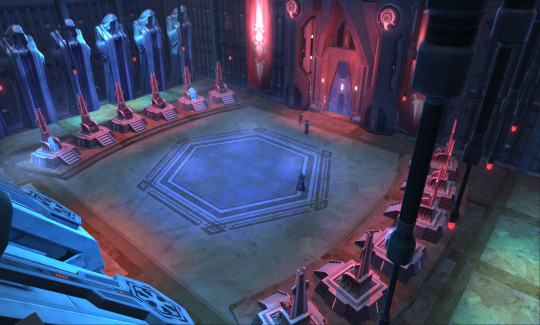
The Dark Council itself is composed of Sith who either killed their way to the top, or inherited their seat from their Sith master—who they probably murdered. Turnover on most Council seats is incredibly high. The Spheres of Ancient Knowledge, Technology, and Military Offense each have three different Councilors within a single year, for example.
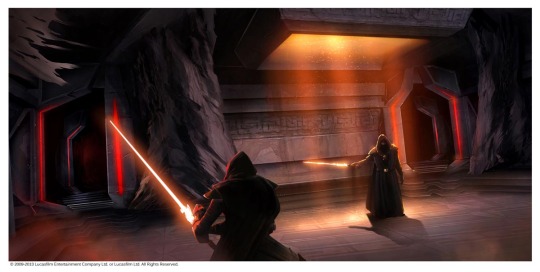
This also means that whoever ends up in charge of a Sphere might be entirely unsuited for it. Who heads up the Sphere of Expansion and Diplomacy? The least diplomatic guy on the Council, naturally. He goes by Darth Ravage, which fits in well enough with the three different Darths whose names mean 'death' (Thanaton, Mortis, and Rictus). The player can even end up as Darth Nox--'Darth Night'. You get the title by killing one of the Darth Deaths.
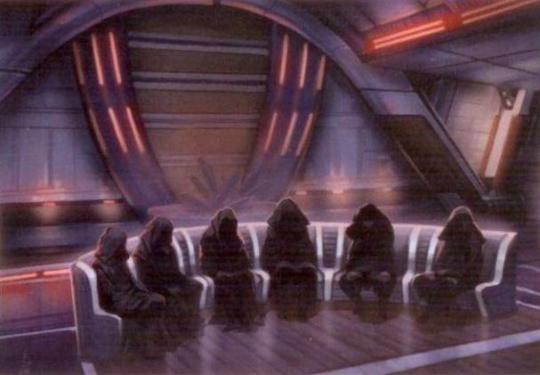
So, which of these barely-domesticated evil goths probably voted to allow 'inferior' beings to become Sith, overturning a fundamental tenet of imperial sith philosophy? Probably not the guy in charge of Sith Philosophy! We never see him, but he seems to have been a traditionalist. On the other hand, Darth "Murder has no rules" Ravage might not be huge on tradition, so we can mark him down as a "maybe". But he doesn't seem to be an instigator for something like this.
But on the subject of instigators: Darth Jadus.
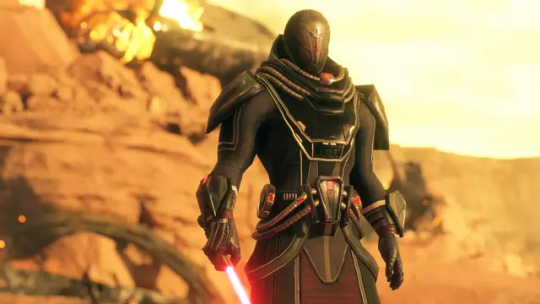
Darth Jadus is an experience. While many of the other Council members make it quite clear they're angry enough to chew on the furniture, Jadus unnerves all of them by being utterly calm and composed, as long as you don't count how intensely fervent and irrational he sounds when he starts talking about the Dark Side. He's unhinged in a distressingly hinged-seeming way.
Heading up the Sphere of Intelligence, Jadus is a noted iconoclast on the Dark Council, using his authority to open Imperial Intelligence positions to aliens. He chooses slaves and Force-blind citizens to be his advisors and agents, ignoring the traditional power structures of the Sith. He prefers his literal cult following of fanatical adherents instead, who see him as a visionary savior, a terrifying inevitability, or both.
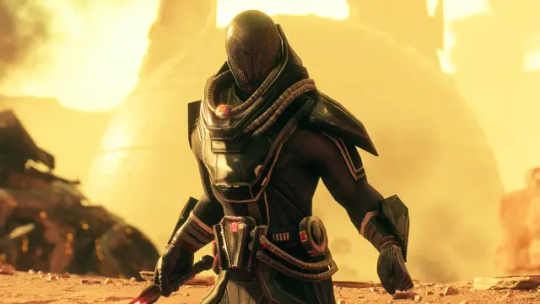
This means he seems to have basically no interest in elevating other Sith. In fact, he hates the way the rest of them run the Empire. Making more of them might potentially be against his interests.
Or at least it would be, if he didn't have some long-running secret plans that he wants to keep the other Dark Council members from catching wind of. Advocating for slaves, aliens and convicts to become Sith would superficially fall in line with his philosophy, and just raising the idea in public could cause such social chaos that his true plans would benefit from it. Jadus is also the most genre-savvy sith in the entire game: he seems to almost be aware at points that he's neither the protagonist nor main antagonist, and thus his evil plans involve not messing with either of them. When he jostles up against the main plot and realizes he has no plausible means to derail it, he responds by leaving the plot entirely.
Given the tactical chaos and uncomfortably fourth wall-touching strategies Jadus makes use of, let's mark him down as a "yes".
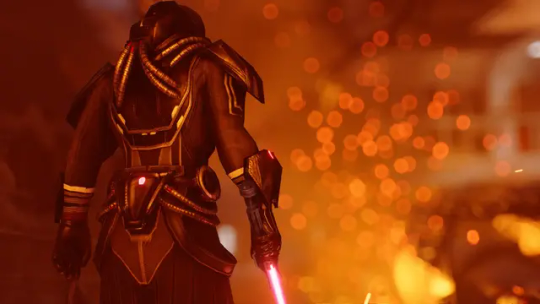
But Jadus is an unpopular one on the Council. He's creepy. Sith HATE feeling creeped out. That's supposed to happen to other people, dammit, not them! And with his disinterest in politics and his deep interest in foisting his manifesto on everyone, he's not the most effective Dark Councilor.
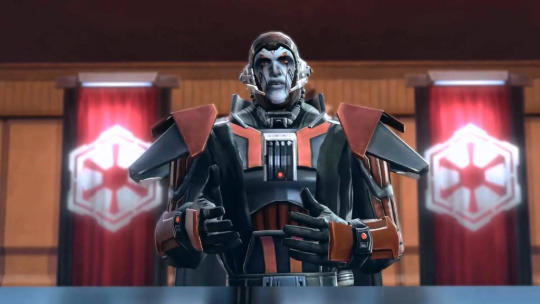
He might be able to pull in a few—Darth Decimus, head of Military Strategy, seems to have been quite willing to exploit any advantage he might be able to squeeze out of a situation. Fun side note, his voice actor also played the First Order officer who was just so done with Hux at the beginning of The Last Jedi.
youtube
[Video Description: A compilation of Mark Lewis Jones as Captain Moden Canady from The Last Jedi, with the video quality partially encrunchified by YouTube. This includes all of his shots from the film, from arrival of the Seige Dreadnought Fulminatrix, to the extremely annoyed look he gives the fireball that kills him. Sound supervisor Matt Wood was apparently pretty sure "FIRE ON THE BASE!" was going to be used as an EDM drop, and I can confirm, I've heard it out in the wild.]
Who else have we got rattling around in this Council, who might have extremely ridiculous reasons to vote yes? Well, we have Darth Vengean, head of Military Offense, was all about the Offense. Who needs defense? That nerd Darth Marr? HA! No, Vengean wanted to restart the war with the Republic. More bodies for the war machine would probably be fine with him.
Speaking of that nerd Darth Marr, Darth Marr.

Apparently he designed this armor himself. Solid effort, my man.
Marr is in his sixties by the time the game happens. He's one of the longest-surviving Dark Councilors, and he sounds so tired of his coworkers in every scene he's in. Heading up the Defense of the Empire, Marr also is the de facto leader of the Dark Council, by dint of being the only adult in the room.
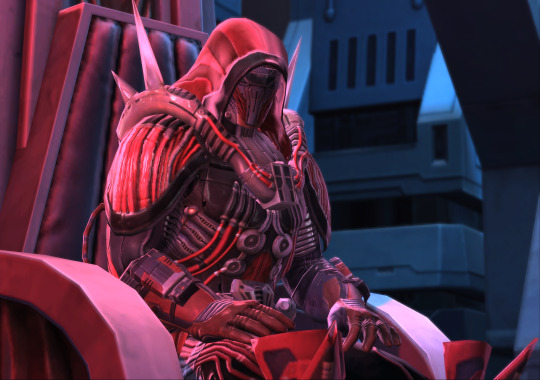
Much like Jadus, he distances himself from the backstabbery and rivalries among the Council members. Unlike Jadus, he 100% means it, and has been focused on not making the Empire explode. He eventually ends up as the unofficial leader of the Empire until he gets one-shotted so hard it makes his ghost chill out a bit. He keeps the spikes, though.

So, if there's anyone on the Council who might vote for this on purely practical grounds, and has the power to push others into agreeing with him, because so help him if they don't stop holding duels in the conference room he's going to turn this Empire around—
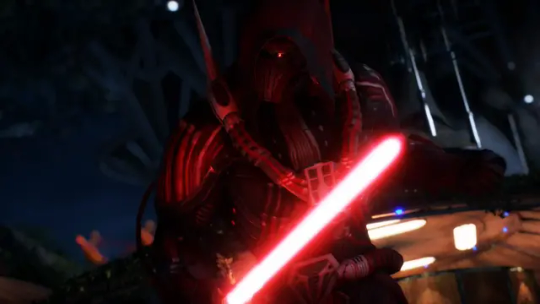
Nobody listens to him on that, by the way. Both the Sith main plots involve duels in the conference room.
In fact, one of those duels is egged on by our last suspect. Marr might be a contender for longest-running Dark Councilor, but there is another candidate: Darth Vowrawn, who seems to be having a much better time being on the Council than Marr. I suspect the only reason why he doesn't have a bucket of popcorn with him in the Council chambers is because somebody made a rule that he had to stop doing that.

Vowrawn is a surprisingly cheerful old bastard who seems to have turned his hobby into his job. He shows up 'fashionably late' to someone else's attempted coup, after lamenting he can't sell tickets to the clusterfuck that's about to commence. In the expansions to the game, he can outmaneuver and outlive all of the competition and end up becoming the Emperor, at the age of 87.
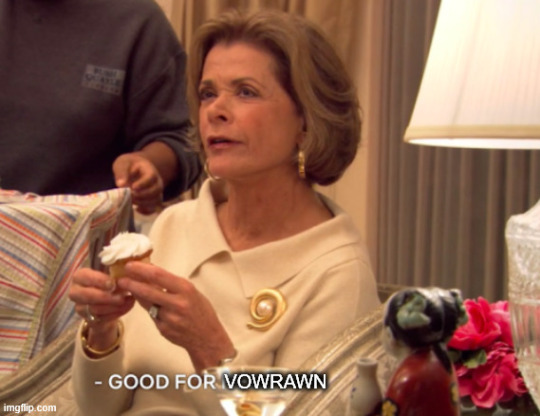
Vowrawn is also indifferent to against the Empire's policies--he supports the ascension of a Zabrak to the Dark Council, and takes one as an apprentice as well. Beyond that, Vowrawn would have to support this move, because he's instrumental in any large project like this, both politically and practically. While the others I've mentioned all have roles explicitly to do with the aggressive expansion or protection of the Empire, Vowrawn heads the Sphere of Production and Logistics. In essence, he's the one who can decide whether all these other bozos get to eat or not.
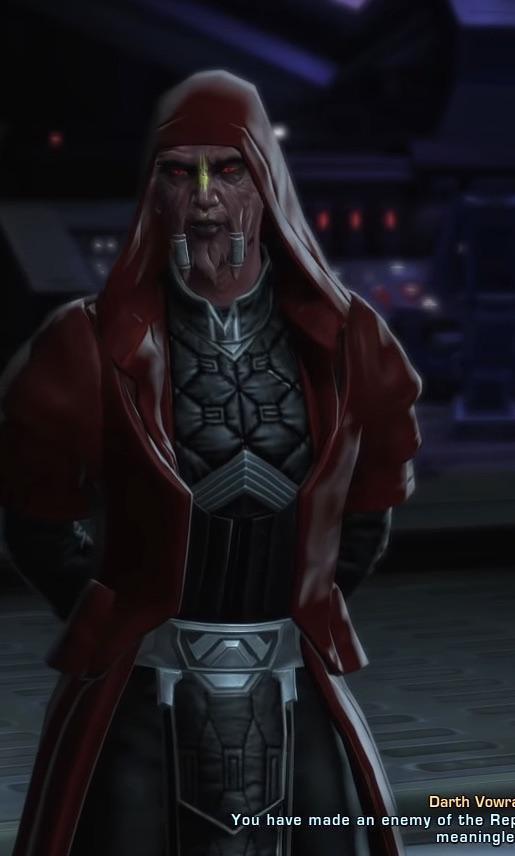
If Vowrawn didn't accept this change, then it would have failed. So, he's a definite "yes" by default.
Speaking of bastards who are still active well into their eighties, we have one last major figure who isn't on the Council that likely advocated for this: Darth Malgus.
youtube
[Video Description: The "Deceived" trailer, set ten years before the game. God, I love this thing. This was the first trailer I saw for the game, and it got me, it really did. The Sith are just as ridiculous as they should be, combined with choreography that feels a lot more crunchy than lightsaber combat had been before, with distinct combat styles for the two main fighters. It's quick, it's impactful, and it's got a memorable conclusion. Love it.]
Malgus is as anti-racist and anti-classist as Jadus is, but without the insane transcendental Dark Side philosophy. Instead, he has an insane philosophy of bettering the Empire through eternal war, which he believes everyone should have an equal ability to participate in. He is what would happen if a Warhammer 40k character had an inside voice.
youtube
[Video Description: The "Disorder" cinematic trailer, set before the Legacy of the Sith expansion. Malgus is 75 here. Man's held together by spite and screws and whatever nutrients you can absorb by being thrown through walls. He's fully given up on the Sith Order at this point and is trying to do his own thing, and he makes it look rad. The choreography has only gotten better, goddamn. Why did it take me three goddamn years to watch this. IT'S REALLY GOOD.]
Malgus is a big deal in the military, with a lot of support from both the Force-blind soldiers and earning the loyalty of a surprising cross-section of Sith. We know this, because he nearly hijacks the Empire at one point in the early expansions. He'd be into this idea, and he probably advocated for it. While he'd have the most direct interaction with the military-related Councilors we already have in the "yes" column, he also has a history of annoying the bejeezus out of other Sith on "his" turf, so who knows! He may have been more persuasive to the others we haven't dug into.
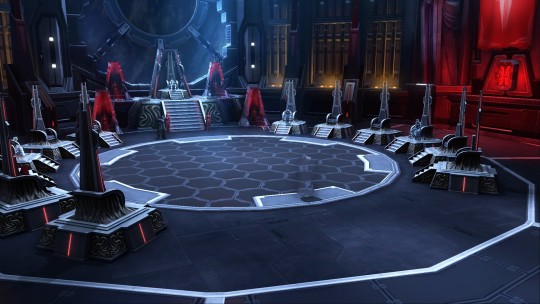
And we can't really dig into all of them at the depth we have with some. Despite how bogglingly huge SWTOR is and the two thousand four hundred and ninety-five named characters and "Additional Voices" credits in IMDb, we never meet some of the Dark Councilors. If you don't play all the eight main storylines, you won't see all of them in the game. I'll admit, I've never seen Darth Hadra, because I've never gotten that far in a Republic-aligned storyline! The Sith you encounter in their stories can often be more one-note, because they're purely there as antagonists rather than people you are legally required to hang out with, and thus have more opportunity to pester mercilessly.
[Video Description: A clip from my own Warrior run-through, featuring my big lad Rejalgar, his coolest friend Vette, and his boss, Darth Baras, who is presently having a screaming tantrum, which Rejalgar makes worse with the most delightfully straight-faced "Is there a problem here?". The Warrior plotline lets you play things sincerely evil, sincerely noble, or sincerely hilarious. Do you want to see Jedi bluescreen when a Sith just straight-up refuses to be violent? Do you want to sidestep a boss fight by offering a family a government pension, something your boss commends as being very devious and evil? Do you want to break up a fight between gangs by threatening to eat them? Come play the Sith Warrior storyline, and be the chaos you want to see in the galaxy!]
youtube
[Video Description, from a clip I uploaded to YT specifically for this post after I found out you can only upload one video per tumblr post wtf: A clip from my Inquisitor run-through, featuring my extremely shirtless lad, Sericus, playing coy and a little airheaded when called up by his Sith master, Darth Zash. Back in the day, Purebloods weren't supposed to be played as canon for this storyline, but there were tweaks later made to dialog that provided a canon explanation for how someone with visible Sith ancestry could end up in this situation. The storyline, however, unfortunately does not fully account for a character whose ideal job description is 'villain's beautiful and deceptively intelligent consort, the true power behind the throne'. It assumes you're playing a character who wants to go conquer and/or do mad wizard-science. Bonus points for eventually letting you marry your eight foot tall razor-faced cannibal thrall though, that's very fun.]
Why don't we see all of the Dark Council? Well, because they're ultimately not important to the story as a group. Events keep you locked tightly under the purview of just one or two of them on the Sith side of things, before the post-game and expansion plots launch you into the experience of being a major player in Imperial affairs, and Imperial affairs launch themselves at you in return.

Everyone realizes the Emperor wants to eat them. Then he dies, except he doesn't. Malgus takes over the Empire for a few weeks. Marr takes over, but half the Council is dead and the rest are still in orientation and are probably also dead, because their would-be successors assassinated them. The Emperor, only mildly inconvenienced by also being dead, eats a planet. Then things go completely off the deep end, and the Dark Council is no longer your concern at all.

It's economical storytelling to not belabor the rest of the Councilors, and playing through as an ex-slave Inquisitor, you continue to face enough challenges directly linked to your background that the resistance feels systemic, even if you don't actually see all that many others who are facing the same issues.
But I think there's a lot of potential for some really wild storytelling in there. Your character receives some level of basic training before they reach the Sith Academy, along with a whole batch of ex-slaves. What did that entail? How was it organized? What happens when folks from abolitionist movements start being trained as sith, gaining all the attendant legal authority over the life and death of others?
And what about the prisoners who were released for training? While one canon option is to play a character who was facing immediate execution for participation in violent anti-Imperial resistance, at least a fair chunk of Force-sensitive prisoners were probably serving longer sentences. What happens when prison gangs start gaining a foothold in the Sith Academy, where they're too dysfunctional to even form Mean Girl cliques? What happens when some of their members become full Sith? How many of them might have Hutt backing, or even funding from the Republic Secret Intelligence Service?
These are the sorts of things the Sith themselves are terrified of. This earns a very sarcastic thoughts and prayers to them, of course. Yet it truly is wild to think about the decision-making process that went into this massive societal shift that the game treats as simply a piece of inciting incident for two plotlines out of eight: Twelve unhinged people sat down in some extremely high-backed chairs one day and voted to give everyone equal access to lightning.

I love Star Wars, it's just the funniest shit imaginable sometimes.
#star wars#star wars: the old republic#swtor#swtor meta#darth jadus#darth marr#darth vowrawn#the sith empire is held together with only chewing gum and bad vibes#and it's hilarious#love these terrible idiots
339 notes
·
View notes
Text

;R1999 A Study on Afflatus (I)

Analysis and theories regarding the concept of Afflatus within the universe of Reverse: 1999

if you're from the old r99 news server or the current r99 rp one (or if you've talked to me at any point about r99) then you might know how obsessed I am with afflatus analysis!
so after going feral on my main account about it, and seeing my afflatus thesis drafts just catch dust on my wips, I decided to just open a discussion about it in the fandom! just little by little as I get the thoughts out of my brain!
so yes, this is very much an invitation for people to discuss and theorize about smaller details of the game such as afflatus, medium and other things--there are many fun ways to interpret the way afflatus applies to characters, I'd love to hear everyone's thoughts! ping me in your posts, go feral in the reblogs or comments!
as usual, transcripts were taken from the R1999 Neocities transcript project!

During the first few months of GL's launch, "Afflatus" was generally considered an extradiegetic aspect of the game--a simple mechanic meant to facilitate gameplay for the player, without any relevance to the lore or the plot. Throughout the course of the following patches, namely within the main story, this idea was disproved in many ways, and there were plenty of clues that reinforced its existence in-universe from the very beginning. For the sake of those who have never noticed, I'll do my best to be thorough, but there may be some instances of Afflatus that I missed, feel free to let me know!
The very first time Afflatus is mentioned is in the main story; Chapter 01 - Stage 4 "Chicago Rescue," Sonetto is the one to bring it up during one of the battle tutorials.
Sonetto: That's quite a lot of critters! Timekeeper, we must do something to turn things around now. Remember what the instructor said in class? "Afflatus is a way to hunt in the world." "Observations of the minerals, plants, stars, and beasts as well as our experiences with the spirit and intelligence let us better understand our own existence." Sonetto: Select a proper target for me, Timekeeper. Sonetto: Use an incantation that is strong against the enemy's Afflatus to defeat them more quickly. You can take it from here, Timekeeper.
The fact that this conversation takes place during a game tutorial doesn't instantly render the contents discussed as "just meta," since we've had many different instances of game mechanics being relevant to the overall history and worldbuilding of the setting; Artificial Somnambulism Therapy is both a game mode and a type of therapy developed by Mesmer Jr's family, used extensively within Laplace, as well as a key plot point in Chapter 3 "Nouvelles et Textes pour Rien"; Picrasma Candy is a way for the player to continue playing and an actual medicine for arcanists developed by Medicine Pocket that Argus heavily depends on to use her own arcanum. Bluepoch makes a point to further develop their story through these mechanics, thus it is impossible to separate them from the story itself--battle conversations, daily tidbits, loading screens, items and other details can all be considered canon! Afflatus is no different.
Another early instance of Afflatus occurs in the Tutorial Notebook, which disappears forever once completed--so the following screenshot was taken from this video!

The text reads:
Sometimes, our Afflatus is strong or weak against an enemy. We need to follow this principle and select the proper arcane skills based on the enemy. Strong or weak? Like a cat to a rat? The relationship between different Afflatuses is like the ecological cycle. When your Afflatus is strong against the target's, your incantation will deal more damage. ─ On Afflatus, Chapter 1
The sticky note implies the existence of a book or research on the subject ("On Afflatus, Chapter 1") which, in turn, supports Sonetto's dialogue about the Afflatus lessons she received in SPDM ("Remember what the instructor said in class?"). With this we can understand that Afflatus exists within the world to a degree that allows it to be studied, also eliminating one of the earliest theories in GL about how Vertin is the only person who can perceive Afflatus due to her status as the Timekeeper.
To my knowledge, there are no direct explanations nor clues as to why or how one would discern Afflatus in others as of writing this. What is the point of assigning Afflatus types in-universe? How can it be done? Sadly, I don't have answers to these questions in particular!
But let's analyze our current examples so far.
According to Sonetto's knowledge on the subject, Afflatus encompasses "observations of the minerals, plants, stars and beasts as well as our experiences with the spirit and intelligence," that allows people to understand themselves. This serves as a list of both Natural (Mineral, Plant, Star, Beast) and Primal (Spirit, Intellect) Afflatuses, while hinting towards the purpose of Afflatus as a tool of introspection.
With this, one may theorize that Afflatus can apply to every living being, as it tackles observations with the surrounding world (Natural Afflatus) and one's inner world (Primal Afflatus). This is partially true, there is a small yet important distinction to be made!
The 1.5 "Revival! The Uluru Games" patch explored the physiological and social differences between humans and arcanists through Ezra and Spathodea, and a new batch of loading screen tidbits were added, such as this one:

The text reads:
The arcanum's Afflatus categories do not apply to humans. However, factors such as personality and preferred instruments may cause certain individuals to have a closer affinity to a particular type of arcane Afflatus.
This daily tidbit confirms that arcanum's Afflatus categories do not apply to humans. The rest of tidbits emphasize on the contrast between the two groups in different aspects; humans cannot cast arcane skills, they use technology and commands rather than incantations, they're considered rational instead of passionate, reason vs instinct, etc etc.

But I believe there is an important distinction to be made! The first loading screen tidbit mentions "arcanum's Afflatus categories," rather than Afflatus itself. There is an aspect of Afflatus that is directly linked with arcanum, and thus it makes sense that it cannot be applied to humans.
We can see this happening in Greta Hoffman's report from the Special Chapter - "The Star" in which she explains her interactions with 37's mother, 77. Here are a few excerpts.
Writer of the Report: I'm not sure whether she was making fun of me or being serious, but I had this feeling that she was eager to tell me how she was granted the secret through a moment of afflatus. It seemed she just saw through the laws behind all things instead of finding them through logical deduction.
"HER": "The rhombus can't be seen with eyes. You shall close your eyes, hearken to the teaching of the supreme existence, and seize the moment of afflatus!" Writer of the Report: Of course, I didn't see anything, nor did I understand what a moment of afflatus was. Perhaps it's just another privilege enjoyed by arcanists, just like their right to be lunatic. Nevertheless, she reached the correct conclusion in a completely wrong way. Is it really possible?
Writer of the Report: But, if there is a god, why are you playing such a prank on us, after we had suffered from the collapse of all the existing orders and the failure of all the great laws? If this is what she called the glimpse of the supreme existence, the moment of afflatus, do you have to present it in such a cruel way?
Even Matilda brings up afflatus during this chapter, in reference to her job monitoring new members.
Matilda: &$#% ... I know she's a rookie, but even so, she's way too unbelievable! "Guide new members with caution and patience. Trigger their afflatus at the right time." Oh, I have to admit, Vertin is doing it better than me for now.
Note the distinction between capital A "Afflatus" and lowercase "afflatus." In this context, the "moment of afflatus" exists as its namesake implies--as an inspiration, a moment of divine impulse that only arcanists can utilize and, therefore, cannot be explained nor proved through human logic.
That is the basis for the tension between Greta Hoffman (a mixed whose arcane blood has been so diluted she can easily pass off as a pure-blooded human) and 77 (a pure-blooded arcanist from an isolated and ancient arcanist society) as two characters from vastly different groups that cannot reconcile nor find a middle ground in their differences. This is the arcane aspect of Afflatus as the 1.5's tidbit mentions, the part that cannot be applied to mankind. But Afflatus also exists as a tool of introspection as mentioned before, which encompasses aspects that any living being can relate to--therefore, it explains why we have both playable and non-playable humans with Afflatus types.
To further understand how non-arcane living beings can still lean towards different types of Afflatus, let's examine the enemies in the game.
The main story is very consistent with how they portray enemies, if you pay attention to their battle information you can see all the deliberate details Bluepoch has added; every enemy comes with a short description that might evolve and change along the story in future renditions of their fights, there are different card sets for different factions (Manus Vindictae's deep black and blue cards vs the Foundation's white and light blue cards), each attack/incantation is uniquely named, giving context and insight into the enemy you're fighting, some even have uniquely named traits/buffs/debuffs!
And as far as I know, every single enemy in the game, regardless of whether they're arcane in nature or not, has an Afflatus assigned to them. Let's look at arcane beings first.

We see that all three examples match their respective Afflatus; a Mineral Carbuncle with a Mineral Afflatus, a Dryad, commonly associated with nature has the Plant Afflatus, and Druvis III, a playable character, retains her Plant Afflatus even as a mysterious NPC boss fight in which her regular incantations have been switched to Manus Vindictae.
And we can also see continuity in Afflatus in other bosses, such as Matilda and Lilya in later chapters--they both retain their own Afflatus as playable characters, and much like Druvis, Matilda's cards are concealed as the default Foundation set for the sake of keeping their identities concealed. There is a clear intent behind these choices.

In the Surface levels of Artificial Somnambulism, the ones that directly correlate to the main story, also feature many other playable characters with their respective Afflatuses; La Source in "Misty Lake a"; The Fool, Bunny Bunny, Pavia, Satsuki and Tennant in "Floating Park a" ...
And I do want to mention that there are instances in which the game allows us to fight playable characters whose Afflatuses have been changed--but there is still an clear goal behind this.
The beta levels of Artificial Somnambulism feature the same aforementioned characters as the alpha ones, but a few of them have different Afflatus. This can be explained within the main story as the direct result of Vertin's mind being tampered with, as we see her struggle to remember and forget things clearly during her AST induced coma in Chapter 3.
???: Her traumatic segment has been reactivated. Increase the power, stabilize her psychube. Try the next dream. Z: The artificial somnambulism therapy may not work on her, Mesmer.
Mesmer Jr.: It means she had suffered the same traumatic experience repeatedly. Even so, she showed no behavioral or cognitive impairment. Back then, as we held her down and put the helmet on her, she even advised me in an extremely calm manner … “I agree with your judgment, but it’s just for this time.” … She was the bellwether of the “break-away” incident after all. I’ll say she’s been well-behaved this time. Sonetto: … I-I thought … Timekeeper is receiving for her low spirit. But you said you held her down … Mesmer Jr.: Oh, that’s just another description of the method used for the same purpose. The aim was to ensure Vertin was unconscious and taken back. That’s the direct order from the vice president of the committee, Constantine. The order from on high was given on the premise of rational thinking and consideration over pros and cons─you are not questioning the reasoning of mankind, are you?
A similar situation happens during UTTU Week, which features playable characters as different characters within the story that UTTU is attempting to share. For example, in 1.2 "Nightmare at Green Lake," the playable characters you fight in UTTU Week represent various different archetypes and tropes in horror.
These inconsistencies are done on purpose, as they're not meant to reflect the truth 1:1.
Now, let's look at human enemies. Here are the two human children from the beginning of the game who disrupt the suitcase--despite being humans, they both have Afflatus assigned to them, and not only that but different types as well, Star and Mineral respectively.

So, to backtrack again! Afflatus cannot be applied to humans from an arcane point of view, simply because humans cannot cast incantations. Therefore, their affinity for a specific type of Afflatus is based on something else, something that they share with arcane beings--such as personality, experiences and preferred instruments.
I want to propose the interpretation of Afflatus being the totality of one's experiences in life; depending on your experiences, the way they've shaped your thinking patterns, your instincts and your personality, you may have an affinity for one Afflatus or another.
This ties in with a different aspect of Afflatus: the idea that one's Afflatus type can change, as the person goes through big changes in their life that influence them in different ways.
If we acknowledge that these battle details are all deliberate and meant to add to the narrative, there are two outliers whose Afflatuses change. The first one is Kakania herself; her debut in 1.7 "E Lucevan le Stelle" includes a fight against her in Stage 8 "Mirror and Lantern" which clearly states her Afflatus is Intellect.
One could argue that this is not the true Kakania, as the battle involves fighting mirror versions of her--but as a reminder, the true one is, in fact, hidden among them! And furthermore, if the reflections are exact versions of the real Kakania, it makes sense that they would have the same battle information as her.

As we all know, when Kakania becomes playable in 1.9 "Vereinsamt," her Afflatus is not Intellect but Plant--I'd like to explain this change as the development Kakania goes through in this specific arc of the story.
Her idealistic views and activism, both for her city and her patients, are directly challenged as the story progresses. She realizes that none of her friends within The Circle were the people she thought them to be, namely Isolde whose complex life and struggles were both overlooked and impossible to discern in Kakania's eyes due to their close relationship, and she also sees the town she acknowledged as flawed but still worth fighting for, turn into violent patriots. Everything that Kakania stood for is gone in an instant, and we see her fighting spirit turn into a desperate near-suicidal attempt at making up for her perceived wrongs.
Such radical events like this would warrant a change in Afflatus, as Kakania adjusts her views due to her experiences.
And then on the other hand, we have The Guiding One's Harbringer boss fight in 1.9's Stage 21 "A Homage Paid"--one of its core mechanics is to change Afflatus to that of the last attack it received. Here we see that distinction from before, the lowercase afflatus referring to the arcane aspect, rather than the experiences a person goes through.
As far as I know, this section of the game also becomes unplayable (or is currently unplayable, I can't seem to access it anymore) so the following screenshots are taken from this video!


Kakania's Afflatus change is something that seems to be directly linked to her evolution as a character, while the Guiding One's Harbringer's Afflatus change is directly linked to its status as an arcane construct, using it as a "mimic strategy" during battle. The psychological aspect vs the arcane aspect of Afflatus respectively.
Next, I'd like to discuss some assumptions made about the different Afflatus types; we expect that Beast characters must have an affinity with animals or be animals themselves (Darley Clatter, Getian, Medicine Pocket, Nick Bottom ...) and we expect that Star characters are all related to celestial bodies or the skies (37, Lilya, Matilda, Lorelei, Voyager ...) due to the naming conventions of the Afflatus. And yes, there are motifs within the Afflatus types that match their naming conventions, but a quick look through the character list prove there is much more to offer, as a good chunk of characters don't align with this initial read of their themes.
We have Pickles, a literal dog, and Kaalaa Baunaa, an astronomer, both with Mineral Afflatus instead of what one would expect of them. It's similar to how fandom perceives Awakened as the sole category for sentient objects, when we have characters like Door and Darley Clatter who are undoubtedly objects, implied to have been given sentience, and thus fall within the group of pure-blooded Arcanists rather than Awakened.
I would also like to point out that these initial motifs have nothing to do with a character's Arcanum--another theory I've seen around is that Afflatus types influence an arcanist's arcanum, which can't be further from the truth. One could argue that Kaalaa Baunaa's arcanum (the summoning of meteors and planets) is related to her Mineral Afflatus--both relate to rocks, after all--but just like the previous assumptions, this falls apart when you examine other examples. Jiu Niangzi's arcanum has nothing to do with rocks nor minerals, but liquor. Ulu's arcanum revolves around fire, yet she's still Mineral.
As far as we know, arcanum is something that can be inherited through bloodlines or lineage--think of Mesmer Jr's 01 Story in her Cover Profile, which states “Nobody is more talented in this than Mesmer Jr. Her bloodline gives her outstanding ability and keen senses, which makes everything clear and intelligible to her” in the context of performing AST, or Tennant, whose 02 Story hints towards her father performing the same type of arcanum she's known for--but it's also something that can be taught. We see this most clearly within students of SPDM such as Sonetto, as her skill set matches that of the SPDM students fought during Chapter 3, portraying the "standard" arcanum taught to all arcanist children.
But not only that, arcanum can be influenced by other factors, such as a character's situation and interests--Blonney's arcanum revolves around making drawings come to life, which correlates with her love for storytelling and horror as a child. Pavia's shadow arcanum is hinted to have been formed out of necessity or as a result of his childhood in a dark basement. Tooth Fairy utilizes the fairies she traps.
We also know that arcanists from the same family may not inherit the same level of arcane power, as seen in Shamane and Kumar; the latter was cast out of her family due to her weak arcane power. In all of these cases, Afflatus has nothing to do with arcanum.
So what exactly do Afflatus types tackle?
These are the Afflatus as I've analyzed them, as much as I could summarize it for easier digestion!

With this interpretation, we can see that Star relates to celestial objects and the skies, but also trailblazer geniuses and unstoppable forces, that which is out of reach for common people. Mineral relates to solid materials and stability in permanence, but also the rigidness of strict systems or traditions or stagnancy. Beast relates to wild animals and creatures found in the world, but also the survival of the individual, the struggle to find a place for oneself no matter what. And Plant relates to the flora and the natural cycles in the world, but also the safety of a collective, that which is inherent to the world such as community or change.
This is why these belong to the Natural category of Afflatus: they are concepts that already existed on the world or were manifested into it, from the ground we touch, the people we interact with, to the ideals and beliefs that influence and create societies or bring people together.
On the other hand we have Spirit, relating to the soul, the supernatural and the spiritual aspect of things, but also the unknown, to follow one's gut instinct or embrace the inexplicable. "The way I see the world is unconventional, because I feel these different things about why and how things are the way they are." And then Intellect, relating to the mind and the logical aspect of things, but also the different mindsets and patterns of thought one can have to rationalize things. "The way I see the world is unconventional, because I have these different rules about why and how things are the way they are."
This is why they belong to the Primal category of Afflatus: they are, as the name implies, ancient impulses and habits that mostly exist within ourselves, our thoughts and our feelings.
The Tutorial Notebook also mentions an "ecological cycle," there is a relationship between the different categories that explains why some are strong or weak against others. It's rather easy to understand for the Primal Afflatus, as it's the classic fight between hearts and minds, but Natural Afflatus is a little harder to grasp.

We see the relationship between Beast and Mineral; the former is weak against the latter, the latter is strong against the former. You may read the Natural Afflatus wheel clockwise or counter clockwise.
Using the previous explanations, let us examine this cycle!
Beast is strong against Plant, because it's the disruption of a community or the harmony of the world through a single individual desperately fighting to change their current situation. A desperate animal does not think about the consequences its actions has on the environment while it tries to survive. Plant is strong against Star, because it's a tight-knit collective that embraces change and thus, the lone genius cannot shine above the rest. In an environment that welcomes everyone and everything, there is no way to stand out. Star is strong against Mineral, because it's a single individual choosing to disrupt the status quo, the stability of their society, for the sake of a dream or ideal. A single genius can topple over entire societies. And Mineral is strong against Beast, because a rigid set of rules or traditions leave no place for those who don't fit inside of it or who oppose it. A government that advocates for mankind's superiority leaves no room for arcanists and their rights, it forces them to assimilate within their established rules.
And this cycle goes backwards and forwards!
But I would also like to propose a different type of relation: we understand the aspect of having advantage or disadvantage, but what about Afflatuses that directly mirror each other?
Beast and Star are two Afflatus that directly correlate to an individual against a collective, whereas Mineral and Plant are two Afflatus that directly correlate to a collective against the individual. They're foils of each other; Beast is the underdog, Star is the genius, while Mineral is the stagnant and rigid yet stable and secure systems while Plant is the ever-changing and adaptive nature of the world.
We may also see this in a more precise way: the ecological cycle and Afflatus relationships exist because someone of Mineral Afflatus who is stuck in their ways and refuses to change can be easily upset by someone of Star Afflatus whose nature is to radically change traditions and offer different paths. This is why Semmelweis, a Mineral Afflatus who is hellbent on clinging to the human aspect of herself and sticks to her stubborn mindsets, has such a fascination with Lorelei. Or rather, why Lorelei has such an effect on Semmelweis, as she is a Star Afflatus that begins Semmelweis' journey of self-discovery and acceptance within Series of Dusks.
We can also see previous themes discussed within this post here: one would think that such a radical change is enough to cause Semmelweis to change Afflatus, but we see through her gamemode and the different endings presented that this change is still very much in line with her mindsets and behaviour, Semmelweis remains stubbornly adaptive and pragmatic to the very end, and choosing to follow Lorelei has brought her a deeper insight to understand herself without radically changing who she truly is.
Another example would be Forget Me Not and Druvis III; we know that Forget Me Not is Mineral Afflatus due to his boss fight in Chapter 2 - Stage 13 "Documentary" and Druvis III is Plant Afflatus.

We see the foil dynamics of Afflatus that don't directly interact with each other: the reason Forget Me Not and Druvis III seem to have this type of relationship can be explained through their Afflatus, with Forget Me Not insisting that she perpetuates the very same cycle of revenge and pain, to never move on and continue in the same spot of grieving and mourning for her family. While Druvis III's entire development throughout the Chicago arc--and even leading into the next chapters--tackles her desire to grow and move on, to finally let go of the worst night of her life that took her family away and begin healing from it. It's exactly what Vertin notices within her, and why she's able to connect with Druvis III.
Vertin: Once you dispel the arcanum, it would not be what it is now. I think you are clear, Ms. Druvis, that … Every tree lives for tomorrow.
And that's where I'll leave this extremely long introduction to my study on Afflatus! I'm planning on discussing other themes in the future, such as the way a character's Medium serves as a bridge between their Afflatus and Arcanum, and analysis of the cover profule, but also proper in-depth analysis of each individual Afflatus!
There is so much to look at when discussing Afflatus, every single Insight material has its own description, and each stage for each Afflatus tells a story that relates to their themes!
Please don't be afraid to reach out with your own ideas or observations, I look forward to what everyone else thinks! And congratulations for making it this far <3
#reverse 1999#reverse: 1999#reverse 1999 afflatus#reverse 1999 headcanons#i dont know how to stress this enough#i LOVEEEEEEEEEEEEEEEEEEEEEE afflatus analysis#i LOVEEEEEEEEEEE thinking deeply about things and connecting dots
83 notes
·
View notes
Note
So I am someone who hasnt been on Tumblr very much since C2 ended. I followed a group of story analyzers who were more or less very fond of C2, and of the critiques they had; most were minor or “matter of opinion differences”. This changed a lot with C3, where many of that same group have issues relating to the themes, character and worldbuilding of C3 in terms of Divinity, Empathy, Power Dynamics, “The Status Quo”, and Responsibility. Where the conclusions the story draws clash with a previous understanding of the world and its themes in a way that appears incoherent to many of these Analyzers.
Personally I found most of these analyzers to be very intelligent, so when most all of them view the bells hells and their actions, as them being a selfish and destructive, even possibly evil, force on the world. But the cast and matt frame it as “they are the heroes” how is there such a disconnect that doesn’t lead to “wow if only matt and the cast were smarter” type conclusions.
Matt and crew nailed a lot of C1/C2, and these same analyzers praised both campaigns, so why is this campaign, the one where so many fans here and the cast view the world, characters and the themes so tremendously radically different? What possible reasons exist to explain these divergences? And are these things that could rear their head again in C4?
(I kept this non-anon to show good-faith)
I can only speak for myself, and I suspect a desire to avoid a barrage of anon hate and accusations of arrogance is why no one has said this in so many words but as someone who doesn’t give a fuck if people think I’m arrogant, because I am and it’s justified, actually yeah I do think the cast should have been smarter, or at least more thoughtful, in this specific work. In discussing this with mutuals who are also meta writers, one of them pointed out that the structural critique is, ultimately, us saying to the cast "you should have been smarter about crafting this aspect of the plot/themes/narrative." It’s not phrased as such, but it’s the obvious implication.
As for what’s different: it is a campaign that has a much more narrowly focused plot, which required a stronger DM hand on the reins than in Campaign 1 and 2 (and did not have that). It is much more centered around one specific PC leading the entire time, which is different than Campaign 1 and 2, which had more balance and I think led to bolder decisions. It’s that Campaign 1 was crafted around the characters the cast made, and campaign 2 was a dialogue between characters made for the intended plot and setting and said plot, and campaign 3 had a vast disconnect that was never addressed due to poor planning in the earliest stages. And as for the lack of consequences, I honestly cannot tell, but I think it’s that it’s a combination of the characters being so reluctant to make choices that you sort of had to shuffle them forward without consequence in order to actually make any plot happen; and that was the big wrap up of a trilogy and Matt is, to put it tactfully, a rather more sentimental person than I am and his desire to grant everyone a happy ending won over a desire to tell a good story. I really do understand that actual play as story involves a unique and difficult dimension of people feeling very attached to their PCs, but if a DM and players are dedicated to a happy ending that fails to feel earned by the narrative, that will be a detriment to the quality of that narrative. And if you are someone who analyzes, it will fail to hold up to analysis and feel very empty and unsatisfying. This serves as perhaps an alternate interpretation for those who find it hard to stomach the statement of "the cast should have been smarter," namely "the cast should have been more willing to make risky choices and kill their darlings."
As for a Campaign 4: a narrative with similar problems could very well emerge. I think the general informal consensus among meta writers is that it feels like Matt is (understandably, but again, to the detriment of storytelling) overly precious at this point with Exandria, at least with the “modern” era and the C1-C3 characters, but a fresh start far in the future or in a new setting feels like it would mitigate the problem. But yeah it’s 100% possible this could be a problem in the future. I’m hoping this was just a “it’s our tenth anniversary and the last longform campaign of my imagined trilogy, let’s give everyone a happy ending” problem that won’t carry over to future works, but it could be a turn towards general self-indulgent fluff. Wouldn’t be the first time someone started out strong and ultimately became a coward who sanded off all the edges, for various reasons. But because of the strength of, frankly, everything but campaign 3 CR has put out, including concurrent works, my attitude is that I’m still here for a hypothetical campaign 4. It is however undeniably true that the vast stores of goodwill I had at the end of C2 are much smaller now, having been drawn on extensively to carry me through C3, and I’ll be less patient with any potential flaws in a hypothetical C4, particularly if they follow a similar pattern.
I guess to end this: if you are someone who follows me or other meta writers or people you consider smart, first off thanks, second off you are allowed to enjoy a story that I think is not very good. I think defending this story as structurally and thematically sound is a bad idea and I have yet to see a coherent argument in that vein, but there is no counterargument, no matter how intelligent or insightful the writer, to someone else’s “well I liked it.” You can like and dislike what you want, and that’s the end of it, and honestly my issue with so many of Campaign 3’s loudest advocates is that they demonstrated a bizarre incapacity to understand the difference between media analysis and personal opinion, and took all criticism of something they loved as personal attack whether or not it was. Speaking only for myself, if you look at my meta and your response is “well I had a good time,” I respect that (and most of us even agree, even if the good time was had more in the analysis than the watching). But if your response is to say “no, you’re wrong, this is narratively well-crafted,” well then you best come correct.
139 notes
·
View notes
Note
I was wondering if youd read Hench yet.
I feel like the premise and the start were solid, and the main character's framing of superheroes through a strict environment cost-benefit analysis was interesting.
But it feels weird that in it's criticism of heroes it just sorta...gave villains a pass. Plus the incredibly loose world building, which early on was a strength in establishing the "you know how this works", vibe, but as the book progresses and the plot hinges increasingly on old interpersonal drama, it's suddenly a big gaping hole.
These are my broad criticisms of it, yeah.
Full disclosure- this is the book I was vagueing about a couple months ago, the one where I got annoyed because the back cover copy was pulling the "no ethical consumption under capitalism" card in relation to working as a henchman, in a way I found disingenuous given that many supervillains are on the face of it much, much worse for the world than the average tech start-up- particularly the kind of supervillain with a staff. But I also thought it would be disingenuous to bitch a book out purely on the grounds of its back-cover marketing department copy, so I bought it and read it. And unfortunately the final roundup on that tension appears to be that villains aren't that bad, are they? Maybe even kinda girlboss even!
Bulleted list under the cut!
The opening is strong, and gave me high hopes, specifically because of how it seemed to be aware of these tensions. Anna, our protagonist, opens as a temp in the employ of a sleazy c-list supervillain who's performative in his interest in his staff's wellbeing but doesn't hesitate to put his interns and temps in the meat-grinder for a leg-up; even a decisive loss to an A-list hero is a way to climb the ladder if you're a C-list villain. On the other side you've got superheroes who are horrifyingly cavalier with the lives of anyone they've deemed to be "on the other side." The protagonist is framed collateral damage in the grand idiot melodrama between two sides that don't give a shit about the lives of the little people in distinct but interlocking ways, and that's pretty compelling- particularly because at this point we're still coloring within the lines of the typical genre paradigm! That mutual self-centered apathy, the ways in which people get pigeonholed into specific roles in the melodrama that define and dehumanize them, drove seven seasons of The Venture Brothers, and now we get the tragicomic spin on that dynamic, we get a story told from the perspective of one of the henchmen or random civilians who get callously offed as part of a sight gag about how awful all of these people are!
That's not where it goes, though. @st-just has a pretty great writeup where they point out that for a story driven by the premise of heroes that cause immense collateral damage and use their institutional influence to dodge the consequences, the story is oddly incurious about the level of damage that Leviathan's enormous criminal organization does in the course of its operations; how many people have died because of all those superweapons he's handing out to lower-level villains? It's all oddly bloodless, and it feels like it keeps pulling back at the last second from the protagonist truly suffering moral injury- or from acknowledging that moral injury. Given how much of her plan involves waging psychological warfare on heroes until they snap publicly, there's a bit of an eric-andre-who-would-do-this vibe coming from then pinning that collateral purely on the heroes. I never got a good read on how self-aware the story is about the fact that Anna very, very quickly becomes attached to real tangible power in a way that makes her underdog framing feel extremely hollow; how quickly she becomes like her former boss, arraigning henchmen in the line of fire for the sake of the Grand Plan. One of those stories where it keeps gesturing but I can't tell the extent to which it intends to commit with a sequel.
The worldbuilding, as you mentioned, is an issue, because there's a failure to clarify quickly enough the larger systems that incentivize the heroes and villains- in fact, it often feels like the characters are operating from within different incentive systems, from different settings. The early sections of the book read like a "Silver-Age-taken-seriously" situation, similar to The Venture Brothers- the casual levels of temp-agency integration, card-carrying supervillain-as-tech-start-up boss, and of course, the myopic violence of free-agent cowboy cop vigilantes-slash-celebrities who never get called to account for it. Halfway through there's a pivot and now there's a Draft, capital-D, and it turns out that this has actually been a superhuman registration setting the whole time? "Supervillains" are actually just any superhumans who don't toe the line? "Superheroes" are screened for in middle schools and separated from their families? That's, uh, not completely incompatible with the aforementioned dynamic but it's a bit of a kludge! There are beats that are really great- Quantum relocating from New Zealand for a chance to partner with Supercollider only to end up subordinated for sexist-marketing reasons, the fucked nuclear family shit going on with Flamethrower and his kids and with the Ocean Four- that imply a level of individual career discretion on the part of the heroes that you'd need to do some work to square with whatever pressures are being exerted by the higher powers. It's actually pretty important who's calling the shots here and to what extent! If the climax is predicated on wanting to overthrow the system you need to make that system consistently visible and legible through the rest of the book!
As you mentioned, the book also pivots into there being a deep interpersonal drama that propels the back half; Leviathan turning out to actually be a former superhero who was dramatically wronged in a morally clear-cut way by Supercollider, who murdered his mentor for inside-baseball cape politics reasons and had this covered up. I've got really mixed feelings on this, because although the seeds of something fascinating are here it feels like one of the ways in which the book is hedging itself. Supercollider's callous but genre-standard disregard for hench lives isn't grounds enough to condemn him, no, he also has to have committed some off-duty murders as well, and he's a shitty boyfriend on top of that, he's a supervillain dressed like a superhero. We get Leviathan's justified grievance, and spectacular violence enacted on agents of an obviously evil system, but no up-close-and-personal villainy- he's functionally a hero with a villainous aesthetic (and a smattering of anecdotes about awful shit that he's done, but the story isn't interested in really making us feel it in the way that it is with Supercollider.) There's a beat that I really liked, where Quantum tells Anna that their respective villainous and heroic bosses care far more about beating each other than they do about the women in their lives or anyone else working under them. I think it was a grave misstep that this turned out to not be where the book went; making it so that there actually is a clear-cut good guy and bad guy in the Leviathan/Supercollider conflict, that they're fighting over something that matters, pushes the entire story dangerously close to what I term "Banal Hatswap" territory.
For more of a vibes-based criticism; and easily my most uncharitable; the entire story is written in a register of self-righteousness, and I have a hard time separating what's meant to be the biased viewpoint of the protagonist from what's meant to be the author Displaying The Correct Applause Lights for Twitter. You've got a protagonist who cracks a one-liner about supporting Penal Abolition.... who also puts out a hit on a guy who slowly dies horribly of sepsis as a result. A one-liner about a female superhero's "suspicious WASP" vibes, right before she emotionally manipulates said hero and arranges to have her kid kidnapped. "It's not my job to kinkshame, buuut," right before proceeding to leverage the embarrassing sexual proclivities of a superhero who's roundly characterized as boorish and misogynistic in conjunction with that. Bemoaning how Quantum, a strong heroine of color, is subordinated and put through the wringer by the patriarchal marketing machine, before acting as the major practical driver in the total collapse of said heroine's life. (This one is the one the protag displays the most self-awareness about, which might be related to the subtext that said superheroine is a potential love-interest.) Grandstanding about and predicating the whole plot on how all human life is valuable and villains don't deserve to receive life-changing brutality.... before being party to Quantum's graphically-detailed levels of payback against her shitty ex Supercollider, I mean we're talking like arc 14 Vicky Dallon levels of body horror and violation here, in borderline pornographic detail. All of this feels like either a very clever reproduction of how the very online know how to say all the right things to launder the fact that they constantly do all the wrong ones.... or it's just. an unreconstructed example of the thing. I can't tell, but the back-and-forth bothers me a lot. It's a situation where it becomes super fucking obvious how much Worm benefited from constant alternate-POV interludes; getting any of this from the head of someone other than Anna would go a long way for me.
Ultimately the book heavily depends on my sympathy for overeducated, temporarily embarrassed white collar computer touchers who throw in with evil worldwrecking conglomerates in exchange for dental. Unfortunately I think we all just axiomatically have it coming and superheroes would ideally pulverize way more of us so there's a level on which I was lost from the word go
Now, for the sake of a balanced assessment I'm going to go over a bunch of the ideas in the book that I did think worked really well:
As mentioned, the opening is extremely strong; the nightmare existence of living paycheck to paycheck as a temp, juiced up by the genre-elements, the slice-of-life hardscrabble existence of a woman at the bottom of the economic totem pole constantly having her attempts at a life worth living blown up by her proximity to this nonsense. Having a date break down because you have to drive your maimed henchman friend to the ER is a fucking amazing beat. Unfortunately the narrative moves away from this low-level approach very quickly, because a lot of what's going on with this thing is that it's a specific strain of power fantasy- a significantly-more-competently-executed version of a kind of villain-falls-for-his-hardworking-assistant Wattpad romance. That's not a pejorative or a criticism, just a kind of power fantasy that requires an end-of-act-one escape from the nightmarish mundanity in order to function. But I like the nightmarish mundanity! Bring back the nightmarish mundanity
The book has some great beats about the intersection of superheroics and women's issues. In a nod to the plight of superheroines from the silver-age and earlier, Quantum Entanglement is a superheroine with reality-warping levels of firepower who's constantly forced to downplay her own presence and individuality in order to help juice up the brand of her male partner Supercollider; in the climax it's revealed that this extended to subtly using telekinesis to create the false impression he's capable of independent flight, which is, implicitly, this settings version of Superman's transition to flight from really big jumps. There's a tendency for superheroines to get big power-bumps in conjunction with an arc about succumbing to a very gendered insanity- Malice and Avengers Disassembled being two prominent examples I can think of- and Quantum's eventual break from the monstrous Supercollider feels like commentary on this. In another one-and-done beat you have the heroine Abyssal, whose career is on the verge of being derailed by her third pregnancy; the catch is that she's a member of what's implied to be a family team (think New Wave or the FF) and her pregnancies are laced through with expectations and hopes that the kids will exhibit powers and be able to pad out the roster. By the end of the book she's mentioned to have been permanently benched, and another member of her team is killed "on-screen-" but that's alright! We've got her three kids waiting in the wings! A deeply grim superheroic spin on a very real kind of patriarchal pressure to set your own career aside to perpetuate your family. Compellingly fucked in all the worst ways.
There's a one-off beat about a nursing home for retired superheroes who are having difficulty controlling their powers in their old age, and it's portrayed as a fucking warzone; dementia-ridden psychics and pyrokinetics constantly inadvertently chewing through the staff and causing gigantic disasters. I think the age-based incontinence of superpeople- and the damage they can cause through no fault of their own- is a really underexplored area for superhero deconstructions, one adjacent to a lot of real-life problems faced by caregivers, and often problems that have no good answers. Near and dear to my heart, this particular problem.
The character of Supercollider is compelling down many of the same lines that Homelander is compelling; a "Superman" figure constructed by marketing-department fiat, with no identity of his own, difficult for the characters to sincerely hate in the end simply because it's impossible to determine where the marketing copy indoctrination stops and the hollow shell of a human begins, Surrounded by a meticulously constructed, rotating "Bat Family" extended cast that are his only semblance of human connection despite how immensely distant he is from them in every way that matters; the designated love interest with whom he's going through the motions, an utterly superfluous sidekick he's implied to be grotesquely co-dependent with to the point that his efforts to keep him safe in the field is a major driver of the collateral damage he does. Most of this we get third hand as Anna is mincing his support-system from the outside in, but the implied inside baseball is genuinely gloriously fucked, and I'd love to have seen some of it go down from the inside.
Anyway, 2.5 out of 5. Good ideas and character concepts that desperately needed more room to breathe, fun worldbuilding beats that desperately needed fleshing out to give those ideas and character concepts that room. Genuinely, this should have been a 1.7 million word web serial.
99 notes
·
View notes
Note
About the gender in hp thing: I know JKR wrote the books wanting the patriarchy to have minimal impact on the world but even through a couple of the metas you wrote you can see that that’s not the case. In your character crying post there’s a clear implication that showing that kind of emotion is a weakness but also that it is not masculine. Equating strength with masculinity is foundational for cultures with strong patriarchies, and this idea infests every other aspect of their lives. Idk because of that and many other reasons I have a very hard time of writing the wizarding world as anything other than a patriarchy
This is a watsonian analysis vs doylist analysis issue.
I 100% do think that JKR went out of her way to really, really downplay the importance of gender in her worldbuilding - and this contributes a lot to the specific feel of the world. You could genderflip, idk. Neville. Snape. Draco. Hermione. McGonagall. and almost no plot elements or character dynamics would change. (Maybe James would bully Severus slightly differently? Idk. He honestly might not.)
Compare HP to something like His Dark Materials, another British fantasy series released at the same time, marketed to the same demographic... in which gender politics are REALLY important. Lyra conforming or not conforming to specific gender norms hugely impacts the way a lot of other characters treat her. So much of Mrs. Coulter's character has to do with how she's navigated the back ways and side avenues into power, because the patriarchy that runs *that* world is extremely explicit and plot relevant, and there's a lot she just can't do.
Now is JKR *good* at writing a gender-blind world? Not really no. So she's stripped out the importance of gender in a fairly surface way, while leaving evidence of the foundations intact. Everyone's a het couple, women take the husband's last name, Molly and Petunia are at home while their husbands work and there's no inverse of that situation, Fleur's father walks her down the aisle at her wedding, it's important that Hermione be able to tame her hair when she wants to, but for Harry it doesn't matter...
There is ALSO the narrative voice poking through and putting its own spin on everything. This is where we start getting judgment (for example) directed both at girls who are too feminine, and at girls who aren't feminine enough. Or sexual assault not really "sticking" if it's directed at boys. We don't have a character talking, in-universe, about how it's wrong for a woman not to want children. We just have a book where the only women who don't have kids (or take care of kids) are villains. Same thing with masculinity = strength = no crying. That's something the narrative framing / bias of the author brings to the table, but it's kept out of the mechanics of the magical world. I guess you could say Harry and Draco equate crying/fainting with weakness (but not explicitly anti-masculinity)... but then Lupin goes out of his way to separate 'fainting' from 'weakness' anyway.
Interestingly, gender is much more baked into the muggle worldbuilding. (Part of why I think leaving that aspect out of the wizarding world was a deliberate choice.) Smeltings is an all-boys school, so is St Brutus.' Dudley teases Harry about his "boyfriend" Cedric, Vernon sizes up Arthur and Mad-Eye by how masculine they are. At the beginning of Book 4, Dudley's diet is this very gendered conflict between Vernon and Petunia, where Vernon doesn't want a "little nancy boy for a son" - and that is one of the only truly gendered insults in the whole series. "Crybaby" almost counts... but the Slytherins tease Hermione for crying too, so idk. They tend to go for pretty gender-neutral insults, like "poor" "unimportant parents" "looks like a chipmunk" ... etc.
Like... I'm trying to imagine a scene were Lucius lays into Draco for not being masculine enough, and I can't. I think that in a canon-compliant fic, a scene like that would feel odd. The conflict would need to be framed more like a "you disgrace the name of Malfoy with your weakness" or "never tell anyone outside the family what you're thinking" or "your believe yourself to be more intelligent than you truly are." Not "you need to man up."
132 notes
·
View notes
Text
TBHX episode 10 rant(?)
Are we uh... sure this is the official episode and not a fanfic AU version because like... that can't be all the angst?

FIRST OF ALL, we have actual answers?? This feels like a fever dream.

Theory on "what did the Dean say" from last ep? Very very validated. In all fairness, there was nowhere else this could've gone.
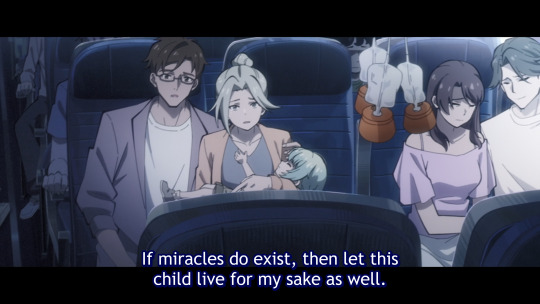
Theory from Ep 8 that Cyan was a child of a hero couple which gave her trust value? Thoroughly debunked and this was such a tragically heartwarming backstory that I'm sobbing. Side note, Luo's parents look so young and pretty this is just so sad. Everyone on that plane bestowing belief on the one child there is just...
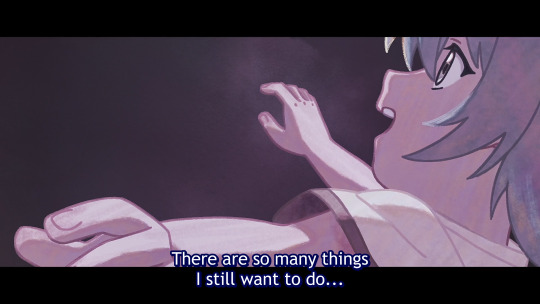
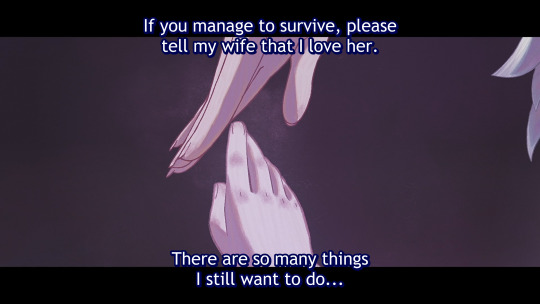
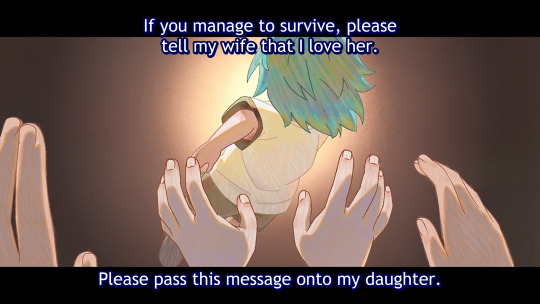
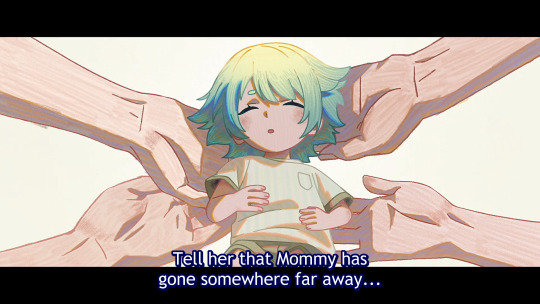
Okay I take back what I said my heart is indeed in tiny little pieces.
But uh... Luo never gets to know this, does he? I am honestly still shocked man is alive and not a villain tbh. (EDIT: Okay he does! Heartbreaked amped up.)
A notable question though. Is trust value still given after death? Because if so, huh??? If not, is it cumulative? As in if A trusts B and B trusts C, does C get trust value from both A and B?
Secondly, because I am still totally normal about this. OMG WHAT DO YOU MEAN YOU CASUALLY JUST DROPPED X'S REIGN ON US?

So this is when the current X rose to power. And Queen was already a top contender. I loved how deferential everybody was to Queen despite her being so young. Girl is just so regal and poised, I can't wait for her arc next week onwards. Given the cameo this episode, we may see Queen and X facing off in the next arc.
But speaking of X, did anybody notice this....?
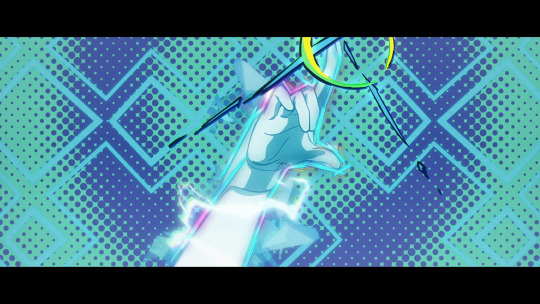
And is anybody else thinking that Cyan may have had some unknown background support on this mission? I'm just saying it looks a little bit suspicious, that's all.
Thirdly, interesting to see Fear is a new concept and was formally recognized just 5 years before the LO arc. How did the Spotlight org (whose name I have finally recalled) become so powerful and well known by then? There's missing missing reasons somewhere in the plot and I want answers.
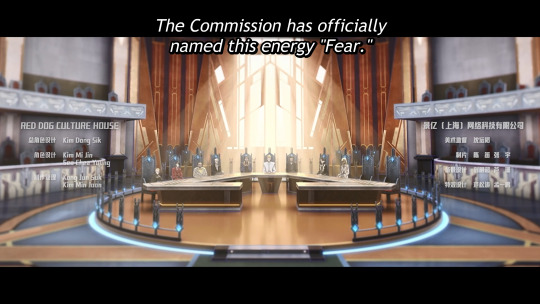
Also, more knowledgeable fans, please help me out here. Who are the people in this photo? I only recognize Shang and Mickey. And more importantly, whose seats are empty?
Lastly, a pertinent (and recurring) theme on how everything, even luck, can be framed both positively and negatively. LHO is not even being remotely subtle about it, and I love it.
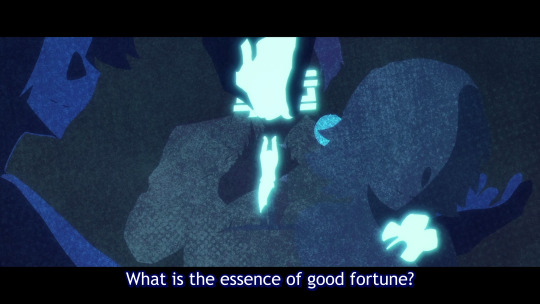


Overall, in terms of worldbuilding analysis, which is the part I go feral over, not too much this week. But it was great watching Cyan come into her own as a hero, defeat the Dean (yay!), and save Luo (I still don't trust this one, what do you mean you left a ship intact?).
I guess Lucky Cyan was lucky, after all.
#tbhx#to be hero x#tu bian yingxiong x#tbhx spoilers#tbhx rant#tbhx episode 10#lucky cyan#tbhx lucky cyan#tbhx queen#tbhx x
31 notes
·
View notes
Text
finished reading silverborn so massive spoilers ahead
I wanted to let it settle into my brain before writing about it to see what stayed with me. So here are some things that have sorted into a list:
The guiltghast is a fascinating creature and I love what it represents in the world? I do love that the lack of wundersmiths being the reason the wundrous society has so many things to deal with because there is no one to maintain these creations.
I really like how each book adds another layer to the worldbuilding, through reveals and re-contextualization (ie. the wundrous society real purpose, or the real purpose of the black parade). I think it really does mirror, at least, my experience of the world growing up.
Does anyone else adore how the nuanced the adults feel? Like Bertram Crow, who has no real interest in Morrigan, or any of her aunts? Everyone feels like they have complicated histories and stuff to deal with apart from her, despite the fact the story does kinda center distractingly around her
Cadence!!!!!!!!!! <3, that's all.
Ok a little more on Cadence, it's nice to see her coming out of her shell and making friends with more of the unit!
I do wonder if this book was hurt by being so anticipated? I think when the series is finished/or as finished as it ever will be it will read as a satisfyingly focused character study breaking up more dramatic books
More on the tone, I found I liked it, but I can imagine why someone wouldn't. Actually I think it sold me on it more, because it makes me believe this series is going in a very interesting direction. It tackles themes that feel unique and, increasingly, mature. And in a way that can only be done for a series with this sort of audience? Also the worldbuilding is so good - it just has such a distinct feel?
The cake scene was so cute ^^ -- i think this book finally sold me on jupiter and morrigans dynamic (not that i didnt like it before), it was so lovely
However. I still live in dread wondering what happened to those other cursed kids who went to live on a farm upstate. What was that
I love how the ages are being explained, and honestly the whole prologue
I like how often morrigan's emotions get the best of her and influence her wunder use - and also how much she lies??
Alright I just needed to get this stuff out. I'm going to write a more cohesive review/analysis when school's wrapped up + try to illustrate some of the scenes/characters bcs im dying to do so. Please if anyone knows what happened to those cursed children barring Jupiter's explanation tell me. I mean i didnt even mention the wintersea politicking (Bertram??) or really get into the weeds of the plot and i want to...
32 notes
·
View notes
Text
How You Know a Book Isn't That Deep
I always know how "deep" a book is based on one question:
Can I use it in an academic essay?
Like, I can use:
The Hunger Games → for essays on class, media spectacle, authoritarianism.
Outlander → colonialism, historical trauma, PTSD, gender roles.
1984, The Handmaid’s Tale, even You → media manipulation, social commentary, surveillance.
But I cannot use ACOTAR. Try quoting it in a serious essay and you’re getting laughed out of the room. Why? Because it’s not built for that. Not even the author takes it that seriously.
Sarah J. Maas literally said:
“My books are about girls finding empowerment, found family, joy and there’s a lot of sex and hot guys.”
That’s her own description. So why are fans acting like it’s a political manifesto?
Stop using buzzwords like classism, racism, capitalism to make ACOTAR sound like it belongs on a university syllabus. It doesn't. And that’s fine.
Yes, there are themes in these books — found family, healing, toxic relationships, mental health, empowerment — but they’re meant to be taken within the fantasy world, not dragged into real-world analysis like you're writing a thesis. Even the mental health stuff is written in a way that fits fantasy trauma recovery, not real-world clinical depth.
Even The Fault in Our Stars, which is about cancer, isn’t that deep. It’s not about the healthcare system, medical policy, or terminal illness advocacy. It’s about one girl’s emotional experience. It’s moving, yes, but it’s not analytical.
And that’s okay!
Books don’t have to be deep to be good. You can love ACOTAR and still admit it’s YA fantasy smut with inconsistent worldbuilding, recycled character traits, and vibes over substance.
The problem is when fans act like it's literature on the level of 1984. It's not. And Sarah herself doesn’t treat it that way — she calls it fun, romantic, horny. She jokes about the hot fae and the sex scenes. So why are some fans treating it like a political manifesto?
So love the books. Talk about the characters. Rant about the plot holes. But stop acting like they’re sacred texts or social commentaries. They’re fantasy romance. Read them. Enjoy them. And let them be what they were always meant to be: fun.
But please — know the difference between real depth and fantasy fluff.
#acotar#sjm#booktok#books#sjm fandom#critical thinking#romantasy#the acotar fandom and their 2 brain cells 🙄#book community#sjm books#feyre archeron#rhysand#nesta archeron#azriel#inner circle#acotar fandom#fandom culture
23 notes
·
View notes
Text
Vigilantes Reread, Volume 3
Now up on Patreon, available for public viewing!
This is basically a volume-version of my chapter thoughts posts, albeit a little less thorough and including somewhat more pictures. Particularly solid topics in this volume include:
Makoto - the worldbuilding she provides, the characterization cues in her social demeanor, her invisible law-breaking, etc.
An enumeration of just how many ways Captain Celebrity is very deliberately designed to contrast Koichi, far beyond simply being a poster boy for the kind of person who's doing Hero work for all the wrong reasons.
A lengthy consideration of Koichi's mother and how her treatment of Koichi is reflected in many, many aspects of his characterization and history, as well as how she's handled by the narrative and the rest of the cast who interact with her.
Some musings about how Vigilantes reads differently in comparison to BNHA now than it did when it was first coming out, focused (for now) primarily on the catbus chapter and the new dimension of Slide and Glide Koichi accesses, but alluding to more serious aspects of the two stories' overall themes as well.
For some sampler excerpts from, respectively, the analysis of Koichi's mother and the way the catbus stuff plays differently depending on whether or not the reader remembers that quirk-wielding animals are 100% BNHA Canon, see below the cut! Enjoy!
(...) the manga’s portrayal of Shouko (and non-portrayal of her husband) clarifies a lot about Koichi. Why was he so hesitant to jump in and help at the beginning? Why did he only ever try for a Hero school exam once and then give up on it completely? Why is he so unfamiliar with his own quirk’s capabilities despite using it daily just to get around? Why is he so tolerant of Pop’s temper and tendency to lash out at him? Why is he so unusually sympathetic and compassionate towards people causing problems long before he even knows why? Why is he so comfortable with ignoring black-letter quirk law in favor of following his own judgment? Why is he likewise so self-effacing, so comfortable concealing aspects of his life, while also so craving recognition? While I don’t want to say that everything about him is due to his Shouko’s harshness – he’s been passionate about do-gooding his whole life, by her account – this chapter makes it clear that the answers to all those questions are rooted in his having to endure and learn to navigate his mother’s mistreatment from a very a young age indeed, with only minimal, indirect support from his father. Vigs doesn’t hammer it in at the outset like BNHA Core does with Deku’s history of bullying and underestimation, but it’s there all the same.
and
Vigilantes is a series that was written as a good-faith effort to create a spin-off that could have its own flavor but still remain true to the core of BNHA as Furuhashi understood it at the time of its writing. However, the core themes, messages and plot elements that one might assume BNHA to deal with are, it seems to me, pretty different halfway through the series than they turn out to be in the end! That has major ramifications for how Vigs ultimately treats its Trigger victims and its real-deal Villains alike, but it also shows up in more minor ways, like the inconsistencies with All Might and Tsukauchi’s history and also here, with this fantastic catbus-gone-rogue Totoro riff. (...) Rats as potentially connected to the origin of quirks, a distinctly rat-like heteromorphic animal as the canon’s example of an animal with a quirk – you can see why Furuhashi came up with the idea of a stray cat (which could conceivably include rats in its diet!) as a quirk-bearing animal! That he made the effort to deliberately echo the idea of animals with quirks right after the main series had raised the idea of quirks being spread by animals makes it a real shame to see reviewers now acting like animals with quirks is some weird invention of Vigilantes with no basis in the main series! It’s hardly Furuhashi’s fault that BNHA set up an idea with major implications about quirks as a whole only to then abandon it save for incredibly vague implications it leaves up to the reader to try and connect the dots on because only Villainous characters actually care about where quirks came from or how they’re evolving!
#bnha#bnha vigilantes#haimawari koichi#haimawari shouko#tsukauchi makoto#my hero academia illegals#bnha worldbuilding#captain celebrity#my writing
21 notes
·
View notes
Text
Back to the Dance Part One: Targaryen Law and Governance, 1 AC-129 AC
Welcome or welcome back to my blog! If you've not read through them yet, here are my Military Analysis of the Dance and my First Dornish War Analysis master posts! This is Part One of a rewrite/revision of the former series, but more on that below.
i. Introduction
I wrote my 14 Part military analysis of the Dance a year or two ago following season one of House of the Dragon. The show got me back into the ASOIAF fandom and I had just read Fire and Blood, and wanted to do a critical analysis of what I believed were the flaws in how the war was written. If the response I got on Reddit, AO3, and here on Tumblr is any indication it seems to have been well received, but much has changed since I completed that series. HOTD Season 2 seems to have had a polarizing reception, but more importantly I've analyzed other events from Westerosi history like the Velaryon Blockade and the First Dornish War (Daeron's Conquest too!). Between researching and writing those analyses and receiving feedback from those following, I decided I needed to change my approach. Reading more secondary literature and even primary sources showed me that my conclusions in the Dance series needed serious revisions, and that there were areas I hadn't properly covered in the Dance which could give new perspectives. I also needed to find a better way to critique, since castigating the writer of a work can only go so far before it gets tedious, boring, and distasteful. I'm more than a year older now and wiser I hope, and intend to apply my experience and further research to create a more detailed, informative, and hopefully constructive analysis of the Dance of the Dragons.
For those of you unfamiliar with my Velaryon Blockade and Dornish Wars series linked above, my approach consists of analyzing aspects of the event/subject in question to identify issues in the writing and worldbuilding, after which I offer a 'fix-it' section to show how the scenario could be mostly if not completely retained with revisions. The 'theme' of my Dorne series which will be carried over into this one is that of scale and managing it: as should be well known in the fandom, George has problems identifying and judging scale which stem partly from his wanting things to be bigger and more grand in his fantasy setting. I believe this scale problem can be tied to issues of perspective more broadly, stemming from his self-described 'gardener' style of writing as opposed to being an 'architect.' George has talked about how most writers have elements of both in their approach to writing but will tend towards one extreme or the other, and George is very clearly in the 'gardener' camp. This seems to consist of keeping a general idea of the progress and end point of a story in mind while otherwise writing the story more from the ground up, with 'pruning' and 'uprooting' taking place as needed while still allowing for a return to those ideas or concepts that were excised later in the plot. This process gave us ASOIAF as we know it, so I can hardly dismiss it's effectiveness, but when it comes to TWOIAF, F&B, and the short stories that were incorporated into the former two works, the faux history premise he set out with clashes with this 'gardener' style.
In George's faux histories, the POV characters that he uses so effectively to tell his stories become historians or chroniclers writing an account of events based on sources, which already give them a sense of where the 'story' is headed and how events will unfold. I believe this creates an unfortunate tendency to treat the characters featured in these narratives as mere plot devices, tasked simply with moving events in their predetermined direction without adequately developing their motivations or reasoning for taking those actions. The result is that many of these characters act in ways that cannot be justified on a Watsonian basis, ie why did the character act this way in their world, leading the reader to look for a Doylistic justification, ie why did the writer need this character to act this way, which breaks immersion and pulls us out of the story. At it's worst the writing becomes narrowly focused on progressing the plot from point A to point B, leading characters to display ignorance and a lack of perspective of their own setting and surroundings in pursuit of the pre-determined outcome.
The piecemeal nature of the Dance narrative plays into this unfortunate tendency, since the final product as portrayed in F&B is an amalgamation of different works: The Rogue Prince, The Princess and The Queen, and segments of TWOIAF that have been fleshed out and expanded upon such as Aegon II's short reign and the regency of Aegon III. Events and characters appear in one part of the narrative that are not accounted for by another while the implications of one action or character's presence are never acknowledged or realized. This is perhaps the biggest downside of the 'gardener' approach: a lack of perspective resulting from a story being built from the ground up with a limited viewpoint in mind, leading to the implications or magnitude of an event or action appearing vastly understated or underwhelming if they are even acknowledged at all. If I could take back anything from the first analysis it would be my harsh treatment of George, when it's clear that his editors, proofreaders, and other aides did him no favours in compiling the narrative of the Dance.
While there are still areas of the Dance which are fundamentally flawed outside how the narrative was edited together, I hope to demonstrate that with some revisions and a more concerted effort to tie the strands of the plot together, the Dance could have been a much better story and served George's purposes more effectively. Doing this will require a much more detailed approach to account for different aspects of the Dance; the Dorne series was twice as many words as the Dance analysis despite having half as many chapters, and F&B devotes only 10 pages to the First Dornish War versus over 200 to the Dance! Expect this series to be a long one, as I've got a lot more to say than I did before; without further ado, once more unto the breach!
Although this series will still maintain a significant focus on the military aspects of the Dance, seeing as how it was a war, Part One is concerned with the political origins of the conflict in the succession crises of Jaehaerys and Viserys. My aim is to paint as comprehensive a picture as possible of how Targaryen government and law functioned in the lead up to the Dance, making the fairly disparate information we're given by the books accessible to the reader and to illustrate why the Dance came about as a failure of governance. This is important since it directly affects our perception of how the great houses of Westeros responded to the beginning of the Dance and whether or not George was able to effectively develop that perspective. Do we get the sense that the characters of the Targaryen court and their contemporaries appreciated the stakes involved in the build up to the Dance, or are their responses conditioned by what the writer demands for the plot?
ii. Establishing Targaryen Government
Analyzing Targaryen government requires us to start with the Conquest itself to get a sense of how Targaryen authority was established based on what we're told and can reasonably infer. The first step in establishing Targaryen authority over the Seven Kingdoms is one which we know surprisingly little about in George's writing, that being the creation of the Crownlands. We know from TWOIAF and F&B that Aegon requested the lands that became the Kingswood alongside Massey's Hook and the lands east of the God's Eye to the shore of Blackwater Bay in return for his allying with Argillac Durrandon, and these lands end up becoming the territory of the Crownlands. We have little else about how they were created exactly and how they were governed, and what little there is requires some digging outside of the faux histories. The Mystery Knight actually gives us the best glimpse into how the Crownlands are organized:
From Maidenpool had come Lord Mooton, from Raventree Lord Blackwood, from Duskendale Lord Darklyn. The royal demenses about King's Landing sent forth Hayfords, Rosbys, Stokeworths, Masseys, and the king's own sworn swords, led by three knights of the Kingsguard and stiffened by three hundred Raven's Teeth with tall white weirwood bows. (A Knight of the Seven Kingdoms, 348-349)
Although this quote refers to events taking place centuries after the Conquest, the outline it gives us is consistent with the 'high school textbook' style of feudalism in George's series. Excluding Maidenpool and the other Riverlords involved in Bloodraven's army, we have the Darklyns of Duskendale whose lands are in the Crownlands but who appear to have marshalled their own forces. We then have the 'royal demenses' about King's Landing which include the Houses Hayford, Rosby, Massey, and Stokeworth, followed by the Targaryen sworn swords led by the Kingsguard. Demesne is an Old French title for lands directly controlled by the lord of a manor, and was brought to England after the Norman Conquest when the feudal structures of Normandy began to be implemented across the Channel. We can reasonably infer a hierarchy from this passage within the Crownlands, with the Targaryens at the top as would be expected, followed by the Darklyns and other lords who are sworn directly to the Targaryens but appear to possess their own demenses, followed by the Hayfords et al who appear to be tenants that have ceded their demenses legally to House Targaryen but still administer those lands on their behalf, with the sworn swords at the very bottom likely being governed directly by the Targaryens on the land immediately surrounding King's Landing.
The picture which emerges suggests that the Crownlands northwest and north of the Rosby road possess their own demenses, including Darklyn, Celtigar, Velaryon, and the houses of Crackclaw Point, while the rest of the Crownlands along the coastline of Blackwater Bay is the Targaryen demense including Dragonstone. Significant also is the fact that the Crownlands mainly encompassed territories that were disputed between the River Kings, Hoares, Durrandons, and Gardeners rather than territories that those kings had ruled consistently such as Tumbleton, Maidenpool, or Felwood. the Targaryens carved out their houses' own kingdom and did not annex large swaths of their new vassals territory, instead establishing a more or less stereotypical feudal monarchy, the government of which only reinforces this impression.
F&B makes it clear that Aegon did not seek to fundamentally overturn the existing norms and structures of the newly subjugated kingdoms:
Each of the conquered kingdoms had its own laws and traditions. King Aegon did little to interfere with those. He allowed his lords to continue to rule much as they always had, with all the same powers and prerogatives. The laws of inheritance and succession remained unchanged, the existing feudal structures were confirmed, both lords great and small retained the power of pit and gallows on their own land, and the privilege of the first night wherever that custom had formerly prevailed. (F&B, 42)
Aegon was recognized as the final authority in the realm, although he relied upon Rhaenys, Visenya, and his small council for day-to-day governance, since he spent half the year touring the kingdoms with his court including one of his queens and half a dozen maesters. These visits were clearly important for the Targaryens since they allowed Aegon to be seen by his subjects and to establish relationships and network with his vassal lords, having spent most of the Conquest itself campaigning in the Riverlands-Blackwater Bay region. The fact he was accompanied by maesters to inform him about local laws and custom also indicates he sought to be accommodating to his vassals and respect their authority, as it could have been easy enough for Aegon and his queens to travel simply using their dragons. Traveling with their court indicates that they governed through their advisors and vassals rather than imposing their authority arbitrarily as individuals, and this is in keeping with the feudal nature of the Targaryen monarchy.
Much like the creation of the Crownlands, the structure of the royal government itself requires us to do some digging in order to determine how it functioned. We know Aegon appointed Masters of Law, Coin, and Ships as advisors from the outset and established the post which came to be known as the Hand of the King; he later established the post of Grand Maester, and also sought the advice of the Grand Septon and other members of the Faith regularly. When Jaehaerys arrived in King's Landing following Maegor's death, we're told he had the King's Justice, Lord Confessor, and Chief Gaoler confined to the Black Cells, and with the end of Rogar Baratheon and Queen Alyssa's Regency we know he replaced a collection of lesser offices: the Keeper of the Keys, the chief steward of the Red Keep and his under stewards, the harbormaster of King's Landing, the Warden of the King's Mint, and the King's Justice among others. Tyrion IV of ACOK also gives us a list of royal officials and positions answerable to the Master of Coin:
The Keepers of the Keys were his, all four. The King's Counter and the King's Scales were men he'd named. The officers in charge of all three mints. Harbormasters, tax farmers, customs sergeants, wool factors, toll collectors, pursers, wine factors; nine of every ten belonged to Littlefinger.
We'll discuss the Master of Laws when we cover the legal system, but we know that the King's Justice, Lord Confessor, and Chief Gaoler are responsible for executions, interrogation/torture, and incarceration respectively. All the other offices mentioned are administrative posts concerned with the King's own authority or with collecting revenues owed to the Crown. Master of Ships is concerned with the Royal Fleet and may have some oversight of the Celtigar and Velaryon Fleets since they are also pledged to House Targaryen; Harbormaster and Purser are both connected to naval affairs despite coming under the Master of Coin's authority, the former office being responsible for overseeing the operations of King's Landing's port facilities while the latter is likely based off an Anglo-Norman office that was responsible for the financial upkeep and personnel management of royal naval vessels.
The rest of the offices mentioned above are concerned with fiscal matters: Tax farmers, customs sergeants, and toll collectors are responsible for collecting royal revenues through tax collecting, tariffs and duties on foreign goods, and use of public roads respectively. Wool and wine factors are wholesalers who deal in textiles and wine as their titles suggest, but their function is unclear; they could be responsible for selling textiles and wine that the Crown possesses through in-kind taxation, splitting the profit between themselves and the government, or they may be obtaining textiles and wine for the Royal Household's consumption and obtaining financial information in the process that the Crown can utilize for levying taxes. Keeper of the Keys, Warden of the King's Mint, King's Counter and Scales are likely connected to the Royal Treasury the Keeper of the Keys being responsible for accessing the treasury vaults and coffers, Counter and Scales being responsible for valuing their contents, and the Warden of the King's Mints is presumably in charge of supplying royal coinage and would have some connection to Westerosi mines which supply the precious metals. While most of these titles come to us via Tyrion's POV, I don't see any reason to doubt that royal finances were handled similarly in the days of Aegon and his successors; by comparing Tyrion's POV with F&B we know that the Keeper of the Keys has gone from one position to four between the reigns of Jaehaerys and Joffrey Baratheon, and there are now three royal mints instead of one.
The importance of Masters of Coin like Edwell Celtigar and Rego Draz post-Aegon suggests that fiscal unification was begun if not well under way by the time of Aegon's death. This makes sense given that Aegon was establishing his house at the top of the new feudal hierarchy of Westeros, and would have needed to collect his incomes in order to further establish his authority and that of his house over his new vassals. The existence of the Master of Coin and the rest of the Small Council does indicate that the approach of the Targaryen monarchy was to formulate policy with the council's aid and with respect to their vassals. Even when this wasn't the case as with Celtigar's taxes, the feudal tax system of the Seven Kingdoms was such that many lords avoided paying these taxes altogether, illustrating a need for the consent of the vassals in order to rule effectively.
iii. Function and Evolution of Targaryen Law
This need for some degree of consent and the use of the council to govern is best demonstrated by the evolution of the Targaryen legal system, although we first should clarify what the monarchy's powers were. F&B gives us a clear indication of this in its discussion of 'Queen Alysanne's Laws,' where Gyldan states that unlike Rhaenys or Visenya, Alysanne did not have the power to "enact laws, issue decrees, make proclamations, or pass sentences." Passing sentences and enacting laws are relatively straightforward concepts to grasp, since we have examples of both in F&B: The Rule of Six and the Widow's Law. In the case of Rhaenys' Rule of Six, a dispute was brought before the court involving a dead woman's husband and her two brothers, the latter accusing the former of having 'chastized' (ie beaten) her excessively for adultery and causing her death. We're told that Rhaenys consulted with maesters and representatives of the Faith before passing sentence, establishing a precedent that became part of the common law (more on that later). We can clearly see a form of legal process being used and counsel solicited, and this is also at work in the enactment of laws such as the Widow's Law. Widow's Law did not come about arbitrary but through Alysanne's 'women's courts,' which provided her with information about the plight of widows throughout the Seven Kingdoms which she subsequently used to persuade Jaehaerys of the need for laws to protect them, which he then promulgated (again, more on this later).
Issuing decrees and making proclamations are more difficult to get a handle on; search of Ice and Fire turns up only two uses of the word 'proclamation,' while 'decree' and 'proclaim' are heavily used in a more colloquial sense which complicates determining their legal usage. We can say that they differ from laws which are enacted as opposed to issued or simply 'made,' while 'A Question of Succession' in F&B lists them alongside court documents as records available to the historian or chronicler, indicating they are not simply verbal orders or commands by the monarch but are written documents. Regarding decrees, Sansa V of AGOT gives us clues as to how decrees function as Joffrey orders Pycelle to "read" his decrees (confirming them as documents), while Pycelle concludes each reading with "So the king has decreed. The small council consents." When Kevan Lannister reads out Joffrey's decrees in Sansa VIII of ACOK, he also concludes with "To all this, the King's Hand and the small council consent." In ASOIAF we see royal decrees made to appoint new members of the small council, grant new titles as rewards from the crown, legitimize bastards (which can only be done by royal decree), and order punishments such as the loss of a limb used to strike a member of royalty as referenced in The Hedge Knight.
F&B offers some other examples which I believe get us closer to the role and power of a decree via the reigns of Aegon, Maegor, and Jaehaerys. We know that Aegon allowed his vassals to keep much of their old powers and prerogatives, but he was also able to issue decrees regularizing customs, duties, and taxes which was previously in the hands of the lords themselves. He also issued a decree establishing the King's Peace, making it illegal to conduct warfare without the king's permission and obligating vassals to abide by the adjudication of their liege lords in disputes. We then have Maegor's decrees referred to in ASOIAF as "Maegor's Laws," which punished and disarmed the Faith Militant for taking up arms against the Crown, although F&B credits Maegor's new High Septon with actually dissolving the Warrior's Sons and the Poor Fellows. Finally, we have Jaehaerys' decree recognizing Baelon as his heir in 92 AC, which was made after consulting with his small council and especially Septon Barth, although Alysanne dissented. Based on these examples and the information we have from the books, I believe that issuing a decree is how a king exercises their power and prerogatives which they possess via the law or laws of the land. Decrees are formulated and drafted with the aid of the small council to ensure their consent to it's contents, but do not appear to have the same force as an enacted law. Maegor was not enacting new laws but was punishing the Faith Militant as their actions were objective violations of the King's Peace, nor were they acting on behalf of the legitimate claimant Aegon the Uncrowned. Likewise, Aegon was using his own powers to ensure the economic unity of his new realm, while Jaehaerys was clarifying the status of his new heir under the law.
Based on evidence from F&B and the other books, making proclamations appears to serve a different purpose than issuing decrees. Thus in F&B we have Aegon proclaiming the Faith to be exempt from taxes with the power to try their own members in their courts; TWOIAF speaks of Jaehaerys' proclamation as rightful king of the Seven Kingdoms at Storm's End, with F&B crediting Rogar Baratheon with proclaiming him king; while Jaime Lannister and Lord Crakehall exchange words over who shall proclaim a new king and whom it shall be in the throne room following Aerys' death in Jaime II of ASOS. Proclamations appear to be a way for the king to make announcements to the realm as a whole with the added legitimacy granted by the monarch's own voice; they can serve a legal purpose of drawing attention to an action being taken, whether proclaiming the succession a new king or official acknowledgement of an heir, which appears to be consistent with how proclamations are defined under English law.
Now that we've got a rough idea of the legal powers of the Targaryen monarchy pre-Dance and how that power was expected to be wielded, we can get into how that legal system evolved. As previously mentioned, Aegon kept the laws and customs of the Seven Kingdoms largely the same after the Conquest, hence why he brought maesters with him on his progresses who were knowledgeable in local laws and customs. The lords were made responsible for settling disputes and adjudicating within their own territories, while F&B states that Aegon was responsible for adjudicating disputes between the kingdoms. F&B and TWOIAF may unintentionally provide us some evidence of the workings of this pluralistic legal system via the Rule of Six and Widow's Law. F&B states that the Rule of Six became a part of the common law from that day onward, while TWOIAF says the Rule of Six is "now part of the common law;" since the Seven Kingdoms did not possess a single common law before Jaehaerys' Book of Laws, this suggests that the Crownlands possessed their own common law separate from the individual kingdoms. This helps to explain why Jaehaerys is described as promulgating the Widow's Law in 52 AC, prior to his codification project: to promulgate means to promote or make widely known, although it can mean to make known a law or enforce it, andf he would have had to promulgate the law if he wanted his vassals to adopt similar laws in their own jurisdictions. This is both interesting and unfortunate from a world building perspective, since we have no idea what formed the basis of these laws: did it use Dragonstone's laws? Were they derived from Riverlord laws, and did Stormlands and Ironborn law have any influences?
With the political and fiscal unification of the Seven Kingdoms already well advanced by 48 AC, it was under the new king Jaehaerys that the Seven Kingdoms were legally unified. We're never given a date for when the new code was completed, but the evidence is unanimous that it was completed while he was king. F&B calls the Book of Laws Jaehaerys' greatest achievement while TWOIAF credits him with giving the realm a single set of laws. The process of researching the laws of the individual kingdoms began in 55 AC and was completed two years later, while the actual codification was said to have taken decades. F&B refers to the code as the Great Code of Septon Barth and heavily credits him with the completion of the Book, so the Book of Laws was most likely completed between 67 and 98 AC or a decade after the research was complete but prior to his death. The research phase is also significant as it clearly indicates that written laws were available to be researched, from the kingdoms themselves and/or the records of the Citadel; this is important because codification refers not to the writing down of laws but the organizing of laws according to a system or plan. No one would seriously suggest that the Roman Empire and it's predecessors lacked written laws prior to the Theodosian Code and Justinian's Corpus Juris Civilis, rather its constitutions and sets of laws had not been brought together systematically despite past attempts.
Creating a single code for the Seven Kingdoms would certainly have increased the power of the monarchy, now that a Targaryen ruler could enact laws and pass sentences which would have direct influence over all of the kingdoms. Nonetheless, the lengthy codification process indicates that a serious effort was made to reflect the traditions of all the kingdoms by consulting their laws during the process rather than simply grafting some of the laws onto the common law as it existed in the Crownlands. We can safely assume that the Lords Paramount were aware of this project and broadly supported it in light of the two years spent by Jaehaerys and his "smaller council" of Alysanne, Barth, Grand Maester Benifer, and Master of Laws Albin Massey collecting and researching all these laws. As we said regarding the tax system, consent of one's vassals would still have been important for enforcing the new code since it fell to the lords and their lieges across the kingdoms to apply it and adjudicate in the absence of the king. With that being said, establishing the broad strokes of Targaryen government, law, and their functions now allows us to assess the lead up to the Dance.
iv. 92 and 101 AC
One of the first issues with discussing the origins of the Dance is the way in which the decision of 92 AC is made out to be less straightforward than it objectively was. While Prince Aemon was the Prince of Dragonstone and heir apparent to Jaehaerys at his death in 92 AC, we have no indication that the title of Prince of Dragonstone was deemed hereditary and could pass on the position of heir to his own children. To use a historical example, Edward III was succeeded by Richard II, the son and heir of Edward the Black Prince, Edward III's eldest son and heir apparent who pre-deceased his father. This put Richard II ahead of Edward III's other surviving son John of Gaunt, but this was the result of letters patent that the king had issued before his death rather than the operation of the law. On the other hand, the decision of 92 AC did not deviate from male-preference primogeniture, favouring Jaehaerys' surviving and eligible son Baelon over Rhaenys who was the king's granddaughter via Aemon. This is also how the succession was determined during Robert's Rebellion, as following Rhaegar's death his younger brother Viserys became the heir over Rhaegar's son Aegon. Nonetheless, "A Question of Succession" seems confused over this idea:
If the precedent set by the Great Council of 101 was followed, a male claimant must prevail over a female. In the absence of a trueborn son, the king's brother would come before the king's daughter, as Baelon had come before Rhaenys in 92 AC. (F&B, 358)
This seems to be George's lack of perspective creeping in, as it should not have mattered in 92 AC if Rhaenys had been born a boy or a girl; Baelon was the king's son and not his grandchild, so the succession passing to him was the correct decision.
It is to the Council of 101 that we ought to look for where things went wrong with the Targaryen succession, as it resulted in serious breeches of legal precedent by the king and his vassals. Owing to Baelon's death in 101 AC, Vaegon Targaryen's refusal to foreswear his maester's vows, and Jaehaerys' only surviving daughter Saera being disgraced and in exile, the king was left with no heir to succeed him. The choice was between the heirs of the heirs, with Viserys son of Baelon on one side and Rhaenys daughter of Aemon on the other with her children Laena and Laenor Velaryon. F&B makes it clear that those who spoke out against Rhaenys' and Laena's claims outnumbered those who spoke in their favour 20:1, but that Laenor's claim from his grandfather via his mother was deemed valid enough for the succession to be decided by a majority vote between himself and Viserys. More importantly, we know of legal precedents from Westerosi history that should have had bearing on the decisions of Jaehaerys and the Great Council, those of Joffrey Lydden and Mern VI Gardener. TWOIAF tells us that Joffrey Lydden became the first Andal King of the Rock after Gerold III Lannister died without male issue; in this case a council crowned Lydden king as the husband of Gerold's only daughter, but he was required to take his wife's family name with his claim deriving from his marriage to her, even though she was not made queen.
In the case of Mern VI Gardener, his predecessor Garth X also died with no male issue; his two daughters were married to Lord Peake and Lord Manderly respectively, and the idea of a woman succeeding was not the issue here but whether the Peakes or the Manderlys should be the ones to have their claimant sit the throne. The ensuing conflict nearly tore the Reach asunder until Ser Osmund Tyrell, the Andal Steward of Highgarden, rallied House Gardener's other bannermen to defeat both factions and place Garth's second cousin Mern on the throne as Mern VI. In this case, Garth's daughters clearly had better claims that Mern but he was chosen so as to reward neither of the warring factions for having brought ruin upon the Gardener kingdom. Mern's presence also means that there were male relatives in Garth's family at the time of his death, whereas this seems not to have been the case explicitly when Gerold III died. It appears that Garth X having male relatives would ensure that the male line of the family would continue even if a daughter held the throne, whereas the council that chose Joffrey Lydden seems to have created a new male line for the Lannisters as it would otherwise have died out with Gerold III.
This is important for assessing Jaehaerys and the Council of 101's decisions, since these historical cases clearly show that the First Men and Andals were willing to contemplate female rulership under certain circumstances. F&B also gives us examples of ladies governing great houses under the Targaryens despite the misogyny inherent in male-preference primogeniture laws, such as Jeyne Arryn during the Dance and Ellyn Caron during the rebellion of the First Vulture King. It can also be argued that Jaehaerys and even Alysanne helped the 101 dispute become the crisis it was, firstly by failing to find suitable matches for Saera, Viserra, Gael, and Daella Targaryen. This is an indictment of both Jaehaerys and Alysanne, as the matches were inferior (either men from lesser houses or far older men who already had heirs) and failed to produce Targaryen relatives in positions of power throughout the realm. This in turn meant that there was no Mern VI-style candidate who could have been selected in place of the two quarreling parties to avoid favouring one faction over the other, while also meaning there were no family ties that Jaehaerys could leverage among the great houses to de-escalate the situation, ensuring that Jaehaerys' vassals flocked to one claimant or the other, leading to division and near war.
The other way in which Jaehaerys and Alysanne helped create the crisis of 101 AC, although in this case Alysanne was long dead, is that the historical cases discussed again show that inheritance through a female line was not so great an obstacle provided some 'finessing' was done. Rhaenys' and Laena's claims might still have been set aside, but in light of Rhaenyra's later betrothal to Laenor to strengthen her claim this should have been the obvious solution for Jaehaerys. He could have declared Laenor his heir on the condition that he took his mother's family name as monarch, and that the 3-4 year old Rhaenyra would be betrothed to the 6-7 year old Laenor to unite Rhaenys and Viserys claims. A further step could have been to make Rhaenys, Corlys, Viserys, and Aemma responsible for setting up a regency council along with Jaehaerys, to help govern the realm once the king died and until Laenor came of age. This solution would have been in keeping with past legal precedent and would have offered both parties a measure of satisfaction, while allowing Jaehaerys to assert his authority as king and the final authority over the realm. Instead he abdicated his role and took the out that Vaegon offered him by leaving it up to his vassals to decide, leading to a result that both upended the existing laws of Westeros and laid the seeds of future discord, with Jaehaerys effectively handing the realm a poisoned chalice through his death.
v. Failure of the law under Viserys I
The problem moving from 101 to Rhaenyra's succession and the Dance itself is that while George's handling of the succession issues in 92 and 101 is somewhat shaky, his handling of Rhaenyra and the Dance crisis is suspect. It doesn't help that George's own comments in Hollywood Spotlight Magazine suggest his grasp of male-preference primogeniture is tenuous at best:
Would it have made a difference if Rhaenyra and Aegon were full siblings, only a year apart? If they were full siblings, regardless of age, the son have inherited rather than the daughter. I had to make it more complicated than that. Two children by different mothers, different wives? First wife and second wife? I always look to history for inspiration, and if you look at Henry VIII and his six wives, he had a daughter by his first wife, Catherine of Aragon, and that was Mary Tudor, Queen Mary I. And then he had a daughter by his second wife, Anne Boleyn, and that was Queen Elizabeth. Then by the third wife, Jane Seymour, he finally had a son, Edward VI. He was third in line, but he was the first to become king. History is full of these kinds of conflicts.
Just so we're clear, Henry VIII's line of succession was fairly straightforward at his death. While there was some controversy over Mary being his daughter from an annulled marriage, once he died his crown passed to his only son Edward as expected. Edward's death without issue saw the crown pass to Henry's eldest daughter Mary, and her death without issue saw the crown pass to Henry's only surviving legitimate child, Elizabeth. This line of succession is not unclear or confused from the perspective of male-preference primogeniture, it's George's perspective or lack thereof which is at fault here.
This questionable perspective is where the issue lies, as we quoted F&B earlier on the subject of how 92 and 101 AC were seen as obstacles to Rhaenyra's claim versus Daemon, when they should not have been. 92 AC was the king choosing between his son and his granddaughter, 101 was a contest between his grandson, granddaughter, and great grandchildren via said granddaughter. 92 AC favoured the king's child while 101 was an issue because the king had no children able to succeed him, but Viserys has no such issues aside from the plot making it appear so. Given that the decrees of the council are just that, decrees and not enacted laws, it makes no sense why they should have applications to situations which are not at all analogous. We also have proof from the narrative itself that this is not the case: "The Blacks and the Greens" suggests that Jeyne Arryn might not be disposed to support Aegon since his claim against Rhaenyra might call into question her own claim, but this would have been a far greater issue decades ago had this been the case. We know that Yorbort Royce attended the Great Council on behalf of Jeyne as her regent and protector, and she tells Jace that her cousin Ser Arnold Arryn sought to replace her three times in the past. Viserys and Daemon are also tied to the Arryns and Royces by marriage since 93 and 97 AC respectively; if the 101 decrees were truly so far reaching and favoured the male claimant over the female in all circumstances, Jeyne's continued status as Lady of the Vale would have been a threat to Viserys' rule. We also have to think that Daemon would have seized on House Royce's support of her as reason to have his hated marriage to Rhea Royce annulled; the best answer in-world is that the Council's precedent is nowhere near as far reaching as is suggested.
The plot of the Dance is further hampered for reasons which I discussed in Part One of the first series: based on the inheritance laws of the Seven Kingdoms, Rhaenyra has no claim to the Iron Throne as of Aegon II's birth. Declaring her the heir made complete sense after Aemma's death and to fortify her claim with oaths, especially given how clearly unfit Daemon was to rule. However, Viserys unwillingness to declare an heir while Aemma was alive and able to bear children clearly shows he was aware of how the law worked, and I must stress law. Elio Garcia claimed in a 2015 Forum of Ice and Fire post that primogeniture is "customary, but not binding" in the Seven Kingdoms, and yet F&B which was published in 2018 clearly gives lie to this assertion. Aside from Aegon confirming the laws of inheritance and succession of the realm, as Maester Gawen reminded Maegor when he usurped the throne from Aegon the Uncrowned, Rogar Baratheon also reminds those arguing for Rhaena over Jaehaerys in 48 AC that "this is not Dorne, and Rhaena is not Nymeria." "A Question of Succession" reminds us that it was Aegon and not Visenya who was the first ruler of the Seven Kingdoms, and then there's the fact that by 98 AC at least, all of those inheritance and succession laws have been brought together in a single legal code, the Book of Laws. This would include the Widow's Law, which affirmed the right of the eldest son to succeed, with daughters only being able to inherit if there was no son to do so. It also made it illegal to disinherit the child of one marriage for the wife and children of another, but this clearly means taking from one son to give to another or from one daughter to another since putting a daughter from one marriage before the eldest son by another wife would contradict the law itself.
By the time of Aegon II's birth, male-preference primogeniture is well established as the law of the land, but Rhaenyra's claim was secure so long as Viserys had no sons. With not one but three sons born to Alicent, Rhaenyra's claim is supported only through Viserys' ignorance of the law and his failure to govern. For starters, if Rhaenyra's claim can be placed before those of her own blood brothers, then how do the decrees of the Great Council of 101 have any legal basis whatsoever? What is the justification for favouring a king's grandson over his granddaughter, great granddaughter, and great grandson when a king can elevate his daughter above his own sons? Unsurprisingly, these implications are never even considered since the decision of 92 AC and the Council of 101 are only ever brought up as justifications for Aegon II's claim, not that they (the latter at least) form the legal basis of Viserys' own reign and that he is undermining his own legitimacy. Yet Viserys only compounds his error in ignoring the law by refusing to govern: he never calls on the lords of the realm to renew their oath to Rhaenyra despite her now having brothers; he never issues a proclamation to clarify his intentions before the realm; he enacts no law(s) with regards to the Targaryen succession to secure Rhaenyra's claim; nor does he issue any decrees either cementing Rhaenyra's position or removing Alicent and her children from the line of succession.
This situation is made even worse when we consider the wider context of Viserys' reign and the fact that he is threatening a succession crisis by not clarifying his intentions and ignoring his council. No one points out to him that there has not been a seamless succession to the Iron Throne since Aenys succeeded Aegon, as Maegor usurped Aegon the Uncrowned, Jaehaerys overthrew Maegor, and Viserys was made heir by a majority vote of lords of the realm which was subsequently recognized by Jaehaerys. By ignoring the law, Viserys is only guaranteeing that this lack of stability will continue after his death, while the message he sends to the realm by his treatment of Alicent and her children is also disastrous. After all, the Hightowers are not just one of the most wealthy and influential families on the continent, they have also been strong supporters of the monarchy since the conquest. Alicent is now the second Hightower consort to be treated with disdain despite her marrying into the royal family, and with the exception of Rhaena, a trend begun by Maegor is effectively continuing through Viserys by disrespecting his non-Valyrian consort. What message does this send to the rest of the realm that the Targaryens insist on incestuous marriages or marriage with cousins and their Valyrian vassals, while their treatment of even their greatest supporters is contemptuous when it comes to non-Valyrian matches?
Alicent's treatment is also important because it suggests a more sinister side to Viserys' character, aside from his horrific treatment of Aemma Arryn of course. It's unthinkable that Corlys Velaryon would allow Laena and her potential children by Viserys to be disregarded or that Rhaenys would tolerate further insult from her cousin were that the situation. This alone may explain the Hightower match since F&B claims there were murmurs that Otto had desired and sought the match, but only Grand Maester Runciter's suggestion of Laena is explicitly stated in the text. While a member of House Hightower, Otto was also a second son whose power stemmed entirely from being Hand of the King, a position he could lose if the king so chose. As a knight he also lacked the personal wealth and 'hard power' of a Corlys Velaryon, while Oldtown being much farther away from King's Landing than Driftmark means Viserys could get away with more against Alicent than if he married Laena. F&B describes Viserys as amiable and not strong willed and reliant and his council for decision-making, but in the case of the Alicent match "His Grace had his own notion, and no amount of argument would sway him from his course."
It's hard not to see sinister intentions in Viserys' actions, that behind the affable, weak-willed man was a deeply insecure, almost calculating individual who utilized uncertainties and grey areas in any situation to exercise power over others. It would certainly explain why he calls Alicent's children "her blood" despite being their father, while allegedly threatening to make Aegon his heir in order to compel Rhaenyra to marry Laenor. With the exception of Daeron and Tessarion being sent to Oldtown, Alicent's other children are essentially at Viserys and Rhaenyra's mercy; Aegon and Helaena's marriage means they cannot seek allies in other houses or obtain outside income, making them and Aemond entirely reliant on Viserys and his heir for their future livelihood, while the presence of Alicent's children and their dragons also means that Rhaenyra must cleave to her father to maintain her status as heir apparent and secure her own future. From this perspective, Viserys comes off not as a well-meaning, weak-willed king forever mourning the loss of his beloved Aemma as HOTD chose to depict him, but as an abuser and manipulator seeking to maintain his power at all costs. This perspective is not entertained by the narrative however, and subsequent events show little concern for how the rest of the realm might perceive the failed governance of the King.
The disputed parentage of Rhaenyra's three eldest children is the best illustration of the failure of Targaryen government prior to the Dance, and the absence of any kind of response from the kingdoms as a whole. HOTD confirmed beyond a shadow of a doubt that Jace, Luke, and Joff were bastards, but the evidence in the books is already overwhelming: Rhaenys children Laena and Laenor show no Baratheon colouring in their hair or eyes (despite Orys Baratheon being a Targaryen bastard), and neither of Laena and Daemon's daughters are anything but typical Valyrians in appearance; Rhaenyra is conventionally Valyrian by all accounts despite her mother's Arryn heritage, and Viserys children by Alicent are likewise despite their mother being a Hightower. Yet when Rhaenyra marries Laenor, a known homosexual who she was forced to marry, and leaves court for Dragonstone in the company of her sworn sword Harwin Strong, all three of her children with "Laenor" look nothing like their parents and are dead ringers for Harwin Strong. This situation suddenly changes after Laenor and Harwin die and Rhaenyra elopes with her uncle and rumored past lover Daemon, whereupon she has two more sons who are conventionally Valyrian in their looks.
This situation means that in addition to becoming king through objectively flawed and bad-faith means, in addition to undermining his authority and Westerosi laws by placing his daughter above his sons as heir, in addition to refusing to use his powers to clarify the situation, and in addition to disrespecting one of House Targaryen's most important vassals, Viserys is allowing his daughter to flaunt the law by claiming her bastards are true born and placing them in the line of succession, while sitting by and allowing her to humiliate another steadfast supporter of House Targaryen in House Velaryon. Despite all of this, the only real blowback from the realm itself comes from Vaemond Velaryon, Corlys' nephew in the books, and his five cousins (the future 'Silent Five'). Corlys takes ill in 127 AC and members of his house gather at Driftmark to discuss the potential succession, with Rhaenyra requesting that Lucerys be made heir to Driftmark since Laena and Laenor are dead. Vaemond presses his claim based on the assertion that Rhaenyras boys are bastards, and she retaliates by having Daemon decapitate him before feeding his corpse to Syrax. When his cousins flee to King's Landing with Vaemond's wife and two sons to plead for justice from Viserys, the King has the tongues of the five removed in keeping with his punishment for claiming that the Velaryon boys are bastards.
Not only was Vaemond's death contrary to the King's decree, which specified muteness and not execution as punishment, but Vaemond is Corlys' bannerman not Rhaenyras. It is the duty of Corlys or the King to deliver these punishments, not hers or Daemons, which renders Rhaenyra and her consort murderers by default. Not only do we have the laundry list above of all the failings of Viserys and Rhaenyra, but we now have the heir to the throne and her husband being guilty of murder and the King refusing to acknowledge the crime or deliver justice. This is where the edited nature of the narrative completely undercuts the writing, because the implications of Viserys and Rhaenyra's actions here and prior cannot be adequately addressed in the Dance itself. A member of one of the oldest houses in Westeros and one of House Targaryen's most steadfast bannermen has been murdered by the heir apparent and her consort, in full view of the realm, and the King took the side of the perpetrators over the victims. The absence of the Silent Five in the narrative of the Dance until after the war ends, combined with the widespread support Rhaenyra enjoys at the outset of the Dance, cannot be reconciled with the scale of this event and Viserys' previous failures of governance. Vaemond's death alone should alter the course of the Dance given the terrible message it sends to other vassals, but because The Rogue Prince was preceded by The Princess and the Queen and no alterations were made to better edit the two together for F&B, this cannot happen.
vi. Conclusion
The 'fix-its' for this part are fairly simple, since my opinion hasn't changed since I wrote the conclusion of my military analysis series: Rhaenyra must be an only child and Viserys legal heir. Rhaenyra and Viserys transgressions are easier to accommodate if the law is on their side in the matter of the succession, meaning that the conflict between Rhaenyra and Aegon's camps becomes one of politics from the start and thus a more genuinely complex and complicated scenario. George's scenario as it stands requires us and the setting to completely ignore how the laws of the Seven Kingdoms work, because the plot is at odds with the world-building. This is not a problem if Aegon, son of Baelon lives to adulthood and is the one to marry Alicent and father Aegon II, Helaena, Aemond, and Daeron instead of Viserys. Alicent's husband can die and Viserys can either marry her to silence those calling for him to remarry and have more children, or simply point to Alicent's four and say that his youngest brother already gave him 'spares.' The fact that the Council of 101 set aside the female claimants can be used in Aegon's favour, while also pointing out that Rhaenyra is the King's own child and thus a direct heir, with the issues truly arising with Rhaenyra's bastards. Obviously George placed himself in a bind since Stannis says Rhaenyra usurped her brother's throne in ACOK, but making them step-siblings could at least mitigate this problem.
That wraps it up for part one; I hope you've what I've written thus far! Part two onwards is when we'll get into the military dimensions of the Dance in greater detail than I managed to do originally. Having established the nature of the Targaryen political system and the issues with it that led to the Dance, we'll step down a level to discuss some of the overarching factors that should govern how the Dance was fought. Stay tuned next time for "Environment and Logistics in the Dance!"
#house of the dragon#hotd#asoiaf#asoiaf critical#grrm critical#fire and blood#fire and blood critical#aegon the conqueror#rhaenys the conqueror#jaehaerys targaryen#alysanne targaryen#viserys i targaryen#aegon ii targaryen#rhaenyra targeryan#laenor velaryon#daemon targaryen#team green#team black
39 notes
·
View notes
Text
SxF Mission 100
(Beware spoilers)
Happy 100th chapter sxf fandom!!!
(I'm super late I know. Works get in the way. 😅😅😅)
Editor san gives the greatest gift for Endo celebrating 100th chapter, by unleashing moon man to fulfil his most desire of angst and gore, didn't he? 🥹🥹🥹(/jjjj)
This chapter, a.k.a Martha's POV during the war was so heartbreaking. 💔💔💔
I cried during the most powerfull panel of this chapter
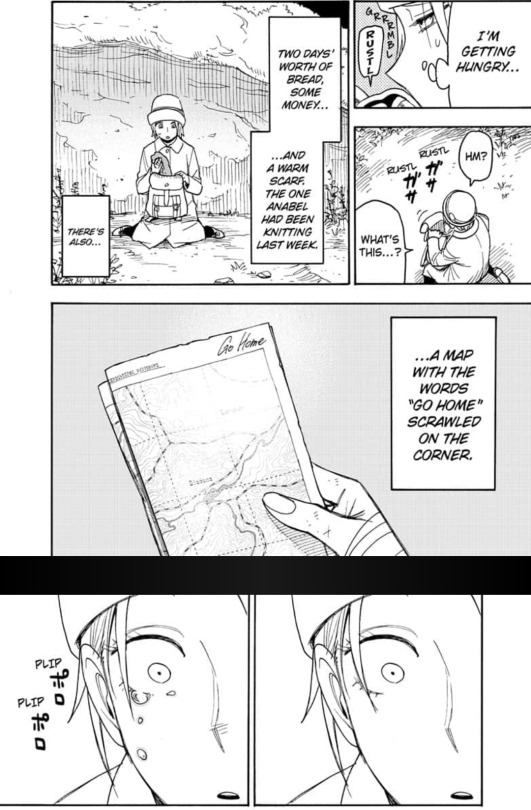
Like....
I-.....

I've read so many awesome analysis regarding this chapter. And I agree with all of them.
The worldbuilding in this arc, the angst, the anti war message.
Yeessss!!!
So let me dissect these arc with different angle.
It's not a secret that my current fic obsession is Orpheus by @cantareincminor (Amazing character development and plot twist, and its entering the final arc!!!! *screeeeccchh*)
One chapter in particular made me realize the one theme sxf fans haven't touch yet, in regards of these past arc (as far as I've encountered sxf analysis).
That is: Forgiveness
Yes. In the theme of war and cruel world, while the people in higher positions only find way to conquer the others; either to gain resources or to defend themselves; people in the lower position or those who actually has to dirty their hands, had to bear the ugly side of war and its repercussion in full force.
Lost of their loved ones, have to numb themselves to kill the others, enduring physical and mental injuries, and many more
And yet, despite all that, the act of forgiving which leads to compassion still exist.
The way Mrs. Anabel treated injured Martha, despite the latter being an enemy country's soldier who in a way was responsible for her daughter's death.
I'm truly amazed by this act of forgiveness and compassion.
And this will spread kindness, which eventually will heal and conquer the hatred, and leads to peace.
Peace of one's soul, which eventually leads to peace of the two countries.
Now, I know we've yet to find out how Martha return to Ostania, or how the reunion between Martha and Henry will happen, but we do know that both of them forgive all the things that occured, and carry on with their lives.
This already shown by none other than Yor Forger herself.
During this convo at chp.91, we finally shown how forgiving Yor can be.

She forgives the war that took away her parents. She forgives how by raising Yuri she had to lost her childhood, and she carries on with her life.
Sylvia Sherwood finally ready to forgive herself for failing her family (and we've yet to find out what happened to her family), and finally ready to carry on with her life.
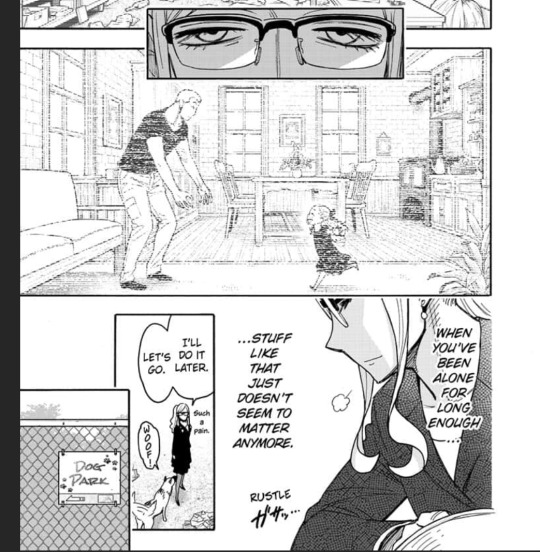
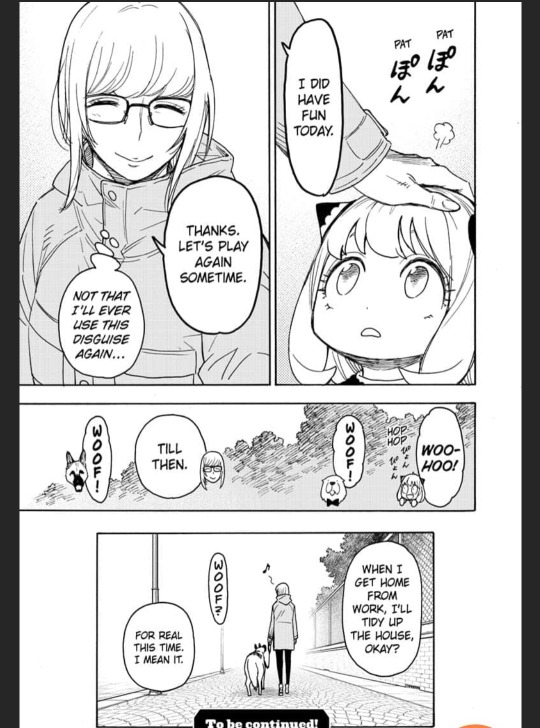
Interesting to see that our main protagonist, Twilight himself, isn't ready to forgive himself.
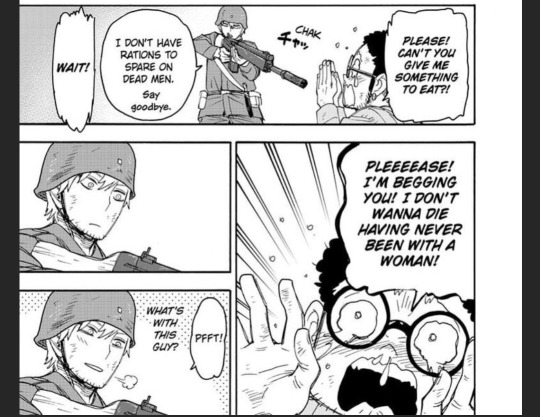
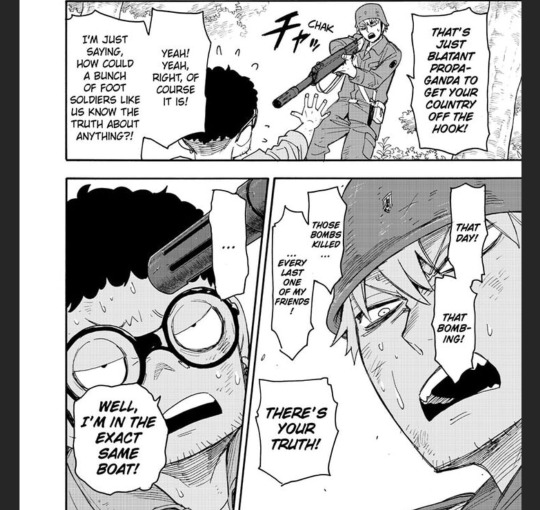
[Redacted]'s still has that tiny space of forgiveness inside of him, as seen by him sparing Franky during their first encounter. But, as soon as Franky pointed out the odd of propaganda, he retaliated.
And it seems that Twilight is not ready to forgive himself, as seen by so many denials he did up until the recent chapters/arcs.
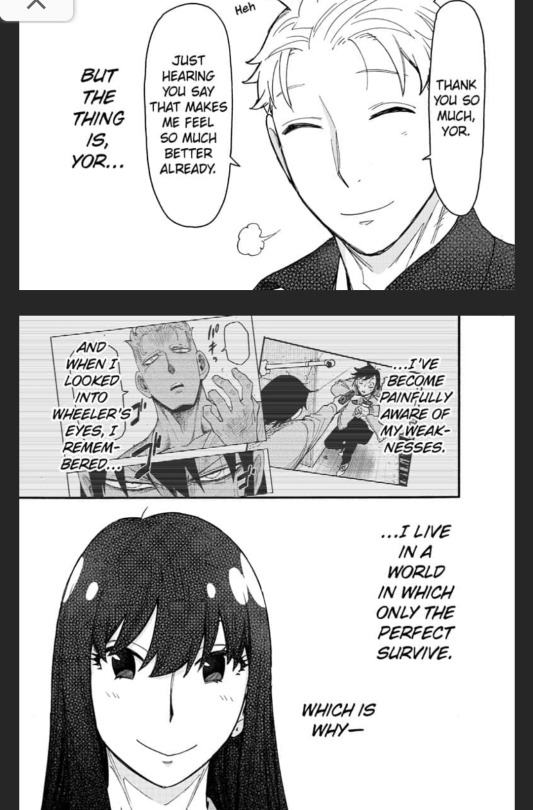
He is getting there bit by bit with the help of Anya and Yor.
And only after he forgives himself, he will start to heal, and finally he can start to carry on with his life.
And obviously we as the fans will cheer when that happen.
Maybe in another 100 chapters???? 🤣🤣🤣
Anyway, happy 100th chapter!!! Thank you for this amazing work, Endo sensei.
Here's for another 100 chapters or more !!
Cheeerrss!! 🍻🥂🍻🥂🍾🍾🍾
#spy x family#martha marriott#sxf chapter review#sxf chapter 100#sxf mission 100#sxf analysis#sxf world building#sxf meta#sxf details#loid forger#yor forger#sylvia sherwood
98 notes
·
View notes
Text
‼️‼️I am gay and transgender ‼️‼️ I am not criticizing anyone just mentioning some stuff I've noticed in a literary analysis sort of way I am not trying to start discourse‼️‼️
Anyway. One of my clangen cats just rolled as trans (yay) & it's got me thinking like.
What is it to write cats with gender variance in a world that is essentially post-gender (to the extent that any of us, having been raised from birth saturated in the unconscious stew of gendered thinking, can write something that is 'post-gender').
I've noticed that the vast majority of work in the warrior cats space does seem to strive to have complete equality between the sexes- and not just equality, but complete indistinguishably. I've even seen audiences routinely forget what gender a character even IS (which is kind of delightful). Toms raise litters, mollies become leaders, there is no friction, commentary, noticeable difference.
And that's fine- I'm more or less going that route with Gutterclan- but in a world where this is no social or material difference between the sexes- what does gender variance mean? How does it function? Where does it come from? What does being transgender mean in a world where gender identity does not really exist (or at least is not differentiated- there is One gender, and it is warrior cat*), and physical transition is not possible? Is it just a matter of pronouns?
What need for gender neutral pronouns in a world where essentially all things are already gender neutral? Is it just dysphoria? Do trans tortoiseshell toms hate their orange patches, or do trans mollies feel self conscious about their stud jowls? That's sort of miserable, if the only thing that being trans is, is having a problem with yourself that can't be solved.
And what does sexuality mean, when gender barely exists, and sex essentially doesn't? There is romance in warrior cats, for sure, but sex doesn't really... exist in most warrior cats works, and it definitely doesn't exist in the canon books. Which is absurd to say, because people are always having kittens, and accidental litters are a constant plot tangle, but there is never a sense of how these things occur. Being mates means you sit together at mealtimes and rub cheeks and get sad when the other person dies, and sometimes kittens appear after a timeskip.
This is of course due to the age range of the books, and because the main characters are animals. And I don't think it's a problem in need of changing, but it does make trying to conceive of sexuality strange in this world.
What does being asexual mean when no cats ever really display a sexual desire? What does being a lesbian mean where there functionally is no difference between mollies and toms? (Aros get to stay, the WC conception of romance ports more or less 1:1 from our world).
I do believe that sexuality and gender are to a certain extent innate, but they are also deeply, deeply shaped by our society's conceptions. Which is to say, eg, only desiring relationships with other women is perhaps innate, but the identity of Lesbian is constructed (which is not to say it isn't real- like, currency is a social construct, and we wouldn't say it's fake, or that it lacks power over us, etc). So what does it mean to have those labels in a world that- ostensibly- lacks much of the very human, very 21st century, very western, social baggage that creates them? And the answer is basically one of two things:
you do a lot of baroque gender worldbuilding. For your warrior cats fan work (which! Honestly kind of bangs and I would like to see).
People like to see themselves reflected in fiction, and the reason that we have pansexual cats and grey-ace cats and demi-boy cats is more or less because we have those things in real life, and we say the cats are those things and so they are, even if their history & context of gender and sexuality are completely different from ours, and likely wouldn't have created the same labels.
And there's nothing wrong with either of those approaches! I'm more or less going to go with approach 2 in Gutterclan, which just small switches in terminology, but I find it sort of... unsatisfying, the more I turn it over
*I put this question to my buddy Goose & he posited that the space that gender roles serve for us are, in warrior cats, essentially occupied by narrative roles. Leader, warrior, med cat, even things like villain or loner. I am nodding at this proposal very vigorously. In a world without gender, is the angst of a medicine cat apprentice longing to be a warrior not a sort of transgender longing to fit a different societal role than the one you are coercively assigned?
Anyway. I still don't know how to make my cat trans.
#in summary. firestar is transgender because he went from kittypet to warrior apprentice. thank you.#warriors#warrior cats#clangen#it's alive!#I know some WC fanworks DO mention this stuff.#I think in clangen rising the cats have fetishes which are explicitly discussed?#& PATFW mentions it a little irt discomfort around being expected to Produce Children#which is what I see most often like. gender roles & sexuality being tied to reproduction (makes sense)#but idk. Im not satisfied.#about to start doing baroque gender worldbuilding. for my warrior cats fanclan#<- not really except kinda for the other clans.#Gutterclan is a first gen hodgepodge of a bunch of different cultures so there's no one Set way#which will further set them apart as Freaks from the other clans as time goes on. my besties <3#anyway. those are my warrior cats thoughts#I would like to hear your warrior cats thoughts too :) if you have them :)#im truly just doing like literary discussion thru this lens idk im not trying to Make A Point or Start Something#<- scared of tumblr discourse
28 notes
·
View notes
Text
Planning my SoC and CK annotations
If you know this account then you probably know that I’ve read the Six of Crows duology somewhere around 30+ times, and I guess if you’re new then now you know (and also hi!), and that I write analyses of the books a lot on here, but that I’m yet to annotate all of my analysis and personal thoughts into the books despite really wanting to. Well, wonderful news, my amazing friend bought me new copies as a birthday gift especially so that I could annotate them!! So that’s kind of going to be my project over summer (alongside all my writing projects dw I won’t be dropping them) and since I said before that I’d be sharing my analytical annotations as I went to bring back the chapter-by-chapter analysis series that fell by the wayside a little while ago, I thought it might be fun to share the process with y’all 😁
So with that in mind, my plans for the annotating process:
I know I’d like to combine directly writing on the pages and writing on sticky notes and/or revision cards. Revision cards appeal to me as an option because I can slip them in neatly and safely but they will be easy to move them to prevent them block the text or damaging the paper. I do have clear sticky notes, but I didn’t find them quite as good as I was hoping when I was annotating Hera by Jennifer Saint, however that may be because that was a large hardback so each one didn’t actually cover much of the text or because of the pens I used, I’d be willing to try them again.
I also have some colourful paper tabs I haven’t used yet that I thought I’d use. I’m basing my method for this on how I used to annotate for English literature class, and I’ll note on that point I have very cleverly lost the colour coding keys I made for The Handmaid’s Tale and Frankenstein, so although all the colourful tabs look lovely they no longer mean very much unless you really compare the pages and find the similarities :( and I will therefore be making sure to actually transcribe the key for this inside the book cover instead of in a separate place. I did find my key for A Streetcar Named Desire the other day so that’s nice, but no sign of the others ❤️🩹
Anyway, I have 10 colours so I’ve started plotting out an idea for themes:
Class, money, and related themes
Religion and related themes
Greed and related themes
Power and related themes
Revenge and related themes
Addiction in different forms
Trauma and the reclamation of power
Worldbuilding
However, I’ve wondered two things based on this: firstly, is “greed” too closely linked to money and class, meaning I’ll just be tagging them both together all the time (or maybe greed & money and classism/the class system should be the two separate categories?) and secondly should “religion” be divided into general religious themes as one category and the weaponisation of religion as another? I’m also kind of wondering whether worldbuilding needs its own entire tab or if I’m better off just writing about it whenever relevant
Any which way I’m hoping to have one or two colours still available so I can alter little details if I choose to. The tabs are just colours I already owned so they aren’t exactly tone in-keeping (4 are varying shades of pink, one of which is very bright lmao) but it doesn’t really bother me and I’d rather use them up than buy more, but also I don’t know whether or not there will be enough to get through six of crows and crooked kingdom both so I might have to buy more anyway, in which case I’d really like to buy the same again and keep it cohesive if I can.
Does anyone have any suggestions for themes/motifs/anything that I’ve missed that I might want to tab??
I’m so excited to start!! I think I’m also going to use a grey highlighter but I might test it on one of the opening pages first to be safe
#annotating it like it’s a study text and I cannot wait#so excited#six of crows#annotating books#crooked kingdom#grishaverse#leigh bardugo#kaz brekker#matthias helvar#inej ghafa#jesper fahey#wylan van eck#nina zenik#kanej#wesper#helnik#six of crows analysis#dk annotates six of crows
15 notes
·
View notes
Note
Have you heard of/read The Undertaking of Hart and Mercy? It’s a romance that I personally find wonderful with really interesting world-building details and a cool overarching concept that seems like it could be up your alley!
I did read this one! It got such a lot of hype in its release year and I had high hopes of it, because I do enjoy a You've Got Mail plot done well and I was excited about the thought of a fantasy You've Got Mail plot. And the worldbuilding was fun!
Unfortunately, this one really didn't hit me the way I wanted it to. I have no objections to the fantasy aspect! Fun on that count, even if I could have used a bit more scaffolding. But the romance fell short for me! Actually this book got me thinking a whole lot about enemies to lovers as a trope and how there are kind of two flavors of it and they're on opposite diagonals of a quadrant.
Okay I made this graphic at the time and I have just updated it with the parentheticals in each quadrant:
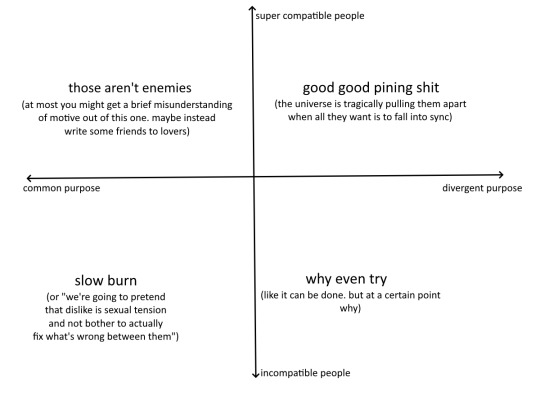
So I think there's a tension in enjoyers of this trope between top right quadrant and lower left quadrant. And as you might guess, I am very very fond of top right (when the divergent purpose isn't, like. One of them is Actually Evil, to be clear. I am not defending Nazi romance here, that is not a thing I am doing) and not as fond of the lower left.
I love You've Got Mail because it's the top right! Kathleen and Joe banter so beautifully in both of their personas, and if there's antagonism in the real-world banter, that's imposed on them by the conflict of their divergent purpose, which is clear after their first conversation, before she knows who he is--their "F-O-X" banter is so fun! It's fast-paced and shows good chemistry! The conflict in this romance comes from their jobs, and the ending is bittersweet, and Joe's behavior is pretty shitty and we all hate that The Corporate Store Wins, but that gives the "enemies" of "enemies to lovers" teeth for me.
Hart & Mercy ... like, to be clear, You've Got Mail's predecessor, Shop Around the Corner, does the lower left quadrant! Hart & Mercy is more properly an adaptation of that and I wish it had been marketed as such even if I get why it wasn't, but no shade for that. It's just that I read the book and went "these two genuinely dislike each other. It's not cute, it doesn't feel like sexual tension even if they have weird nicknames for each other like no normal human person has with their nemesis, I think they should probably both date other people" and then there were just very few moments in the book where I changed my mind on that at all?
The 90s romcoms understood argumentative banter that read as collaborative and an actual sign of chemistry, but I feel like a lot of contemporary romcoms that market themselves as enemies or rivals to lovers don't, and for me, The Undertaking of Hart & Mercy missed that mark.
(Which. I am so sorry to write an essay on why a book you very kindly recommended did not work for me. It's just that I'm in the swing of things from doing the opinions meme and now that I've written this all out it seems like a waste to delete it. A lot of people enjoyed this book heaps, that's why it was so buzzy! It just turned on my writer analysis brain and helped me pinpoint why enemies to lovers is such a hit or miss trope for me.)
Anyway, to share a fantasy romance enemies to lovers that DID work for me, The Sorceress Transcendent by Casey Blair is a novella that starts with the tried-and-true "show up on your enemy's doorstep saying you didn't know where else to go" trope! And contains love interests who fought on opposite sides of a war, where the blame comes firmly down on the warmongers who sent them both to war in the first place!
31 notes
·
View notes
Text
I'm now offering Alpha and Beta Reading!!
Are you interested in one of my famous (or maybe infamous) Two Page Rambles™? Do you want a full MJ breakdown of your story, everything that's good and bad and in between? Then look no further!
Starting at $25 (for shorter novels) / $35 (for longer), you can have my detailed, neurodivergent breakdown of your wips lol
For a mini breakdown of what I'm offering:
ALPHA reading is more for overall story analysis/concerns—this is better if you haven't had any feedback yet, if you're in draft 1-2 and stumped on how to make it better, or if you only want feedback regarding the Big Picture storytelling/arcs.
BETA reading is for polished drafts that you're trying to make publication-ready. It's more detailed feedback, focusing not just on story, but also on pacing, worldbuilding, plot progression, and prose/style.
SENSITIVITY/EXPERT reading is for representation of minority groups that I am a part of or stories that involve medical/science topics that I am an expert in. This is less detailed feedback, focusing on the representation and accuracy of these specific themes.
PAY WHAT YOU WANT is for any kind of critique/feedback service you want for any price. You choose how much you pay and I have complete freedom/control of your request.
#writeblr#writblr#writers on tumblr#writeblr community#writerblr#writer community#writing community#novel writing#fantasy writing#writers of tumblr#amwriting#mj posts
37 notes
·
View notes
Text
November Reading Recap
Dead Astronauts by Jeff Vandermeer. Either I'm not smart enough to follow this book or it's just not terribly coherent as a novel, and either of those is equally possible, to be honest. I am finding that I like Vandermeer's earlier work on the whole more than his later work, though.
I'm Afraid You've Got Dragons by Peter S. Beagle. A fun romp. It didn't blow me away, or anything, but it was a lot of fun.
The Last Unicorn by Peter S. Beagle. I remain most attached to the move adaptation of this novel, unfortunately, so that's always in my head when I'm reading. But despite that, or maybe because of it, this novel still delights me. It's like a warm blanket.
Catching Chen Qing Ling: The Untamed and Adaptation, Production, and Reception in Transcultural Contexts ed. by Cathy Yue Wang and Maria K. Alberto. I was very excited to read this book! I was thrilled when I saw that a collection of academic essays on The Untamed was coming out. Not all the essays in the collection are created equally, naturally, but I particularly appreciated the ones about the morality police in the fandom and the one focusing on (the violence of) translation to English. What I missed from this specific volume was more analysis of the text itself as a literary object, but that wasn't the remit of this collection, and I certainly hope that more studies will be forthcoming.
Cassiel's Servant by Jacqueline Carey. Mostly this book made me want to reread the Kushiel's Legacy series; I'm not sure if that is praise or an enticement of this book itself. I wasn't enchanted with it on the whole, though that might be because Joscelin was never the character I was most attached to. I would read the shit out of an alt POV from Melisande.
Golden Witchbreed by Mary Gentle. Finally finished this book after stalling out on it for literal months. It was interesting! Conceptually and in execution. It did feel very much like it was written in the 80s (which it was), though without the kind of objectionable stuff I would've expected. A review of it did describe it as having a "leisurely opening" which I would say is accurate.
Devils Kill Devils by Johnny Compton. I really liked The Spite House so I definitely wanted to pick up this one, and while I liked the former more this was also a really fun take on vampires unlike what I've read before. I'm picky about my horror (I'd say I don't like most of what I read) but I'll bestow the "horror I actually liked" crown on this one.
Persians: The Age of the Great Kings by Lloyd Llewellyn-Jones. For a book that was really emphasizing that it was going to lean on Persian sources rather than Greek ones for a less Greek-biased version of Persian history, it certainly felt like the author ended up relying a fair amount on Greek sources. That being said, I learned more about the (early) Persian Empire than I have before, so it was edifying in that way, if not a particularly outstanding book.
Blood of the Old Kings by Sung-Il Kim, trans. Anton Hur. I'm very glad to see that this book is apparently the beginning of a series and not finished, because while I enjoyed it as a whole the ending felt a little rushed and far too neat for me. So hopefully that will be complicated in further volumes, which I probably will read. The use of dead necromancers to power an empire is, on its own, a very neat worldbuilding conceit, and I think that (interesting worldbuilding) more than character is the appeal of this work to me.
Remnants of Filth: Vol. 5 by Rou Bao Bu Chi Rou. I continue to really enjoy this one despite the fact that the initial lure has abated somewhat in the course of the plot. I'm excited to see where this goes - this volume included a plot twist I definitely didn't see coming, which is always fun. It's not my favorite danmei I've read but it is a standout.
Don't Fear the Reaper by Stephen Graham Jones. I don't know quite why I keep reading this series when I'm not really a slasher fan and it is clearly tailored toward the slasher fan. I mean, it's certainly meant to have broader appeal as a horror novel, but it is a slasher first and foremost, and I'm just not that into that subgenre. I think it's because I want to be into it. I can recognize a good book when I read one, though; just not for me.
I Was a Teenage Slasher by Stephen Graham Jones. On the other hand, the above all being said: I actually really enjoyed this one! It was certainly playing with a lot of the same tropes but in a more, idk, playful sort of way that I enjoyed. Definitely heavy lampshading, so if that doesn't work for you then this book won't. But for me at least, it did what it was trying to do.
The Stars My Destination by Alfred Bester. I'm looking forward to hearing what people in my book club have to say about this one. I will say that the rape felt unnecessary and it definitely read like sci-fi written in the 50s by a man. I don't think I can say that I liked it. I'm not sure I can say I hated it, either, but I definitely didn't like it.
Vita Nostra by Marina & Sergey Dyachenko, trans. Julia Meitov Hersey. I've had this one on my shelf for a long time and it was good to finally read it! For someone who says she doesn't read a lot of 'magical school' books I've certainly read a lot this year, but this one is probably the most interesting and definitely the most inventive of what I've read. Not necessarily my favorite, but I'm fascinated by what the author is doing. I know there's a sequel, and I'm torn on whether I want to read it or not; I'm curious where the author would go, but I'm also satisfied with the story as it's left at the end of this book.
Drowning Sorrows in Raging Fire by Priest. Possibly my favorite danmei I've read, and at this point I've read a few. It's not going to trigger my fic writing brain, I don't think, but that's mostly because it already gave me so much of what I wanted. It's very, very good in terms of the story it's telling, the themes of monstrosity and human weapons are right on point for what I like, and the plot is pretty damn tight and good at not sprawling the way some danmei is prone to. Fucking fantastic. I can't share the translation I read, but it's being published by Rosmei in English starting in January 2025.
---
I'm currently reading Challenger by Adam Higginbotham for a little bit of nonfiction (my first in a while, you may notice); after that I'm not sure what I'm going to read. I'm traveling at the end of this month, so it'll be a little dependent on what's on my Kobo/if the sequel to Feast of Souls by C.S. Friedman arrives in time/what books I find that I want to read at my parents' house.
29 notes
·
View notes